






You may have noticed our new logo, released just prior to this report in early 2024. This new look has deep symbolism paired with beautiful artwork from Texas artist, Claudia Gizell Aparicio Gamundi of Bodega Visual. We invite you to “Follow the Phoenix” throughout this report, by reading call-out panels scattered throughout – each explaining a different element of the logo. The Phoenix icons that appear in the table of contents signify that there is a panel in that section.
As you take in these new stories of TRLA’s work in 2023, look out for the themes of rebirth, resiliency, determination, and grit that are showcased in TRLA’s work and new logo. However you choose to interpret it, we hope that you love the Phoenix as much as we do.
Cover
Hands of Hope by Mauricio Garay
Courtesy of the National Center for Farmworker Health
Credits
Editor in Chief: Hailey Hollowell
Associate Editor: Hannah Allison
Editorial Advisory Board: Karina Garza & Sam Rucobo
Contributors: Ciara Ayala, Robert Doggett, Mary Johnson, Anna Novak, Noelle Burke, Paola Camacho, Caitlin Fish, Monica Garza, Brittanny Perrigue Gomez, Sharon Grady, Lauren Joynerc, Sophie Primeaux, Reneé Treviño, Jake Villarreal, Susan Watson & Sarah Worthington
Design & Layout: Jennie Denton (lamplight-creative.com)


MISSION: Provide exceptional legal advice and representation to impoverished people.
TRLA’s dedicated team of lawyers, paralegals, social workers, legal assistants, and administrative staff covers a lot of ground (68 counties, to be exact). From big cities to tiny towns, we’re always ready to lend a hand when folks need it most. In 2023, we were as busy as ever, tackling all sorts of problems to ensure justice isn’t just an aspiration—it’s a reality.
Our work addresses a wide array of issues dailyranging from environmental justice to survivors’ rights and everything in between. Take our Foster Youth Justice Project, which helps ensure our young clients have someone to guide them through the maze of the legal system and their individual rights. And then there is our Medical Legal Partnership (MLP). Ever heard of them? Our MLP advocacy team are like superheroes in scrubs, teaming up with doctors to fight for people’s legal rights and health. But that’s not all. Additionally, we stand shoulder to shoulder with veterans who’ve bravely served our country, immigrants seeking refuge in the Lone Star State, and countless others who need help but cannot afford to hire a lawyer.
Legal aid is all about making sure everyone gets a fair shot. This annual report offers a glimpse into the impact made possible by TRLA’s supporters in 2023, showcasing the stories of resilience, empowerment, and justice that define us.
Justice begins here.

 Southern Migrant (SMLS) Ser Texas Ser vice
The Nor th Star
Southern Migrant (SMLS) Ser Texas Ser vice
The Nor th Star
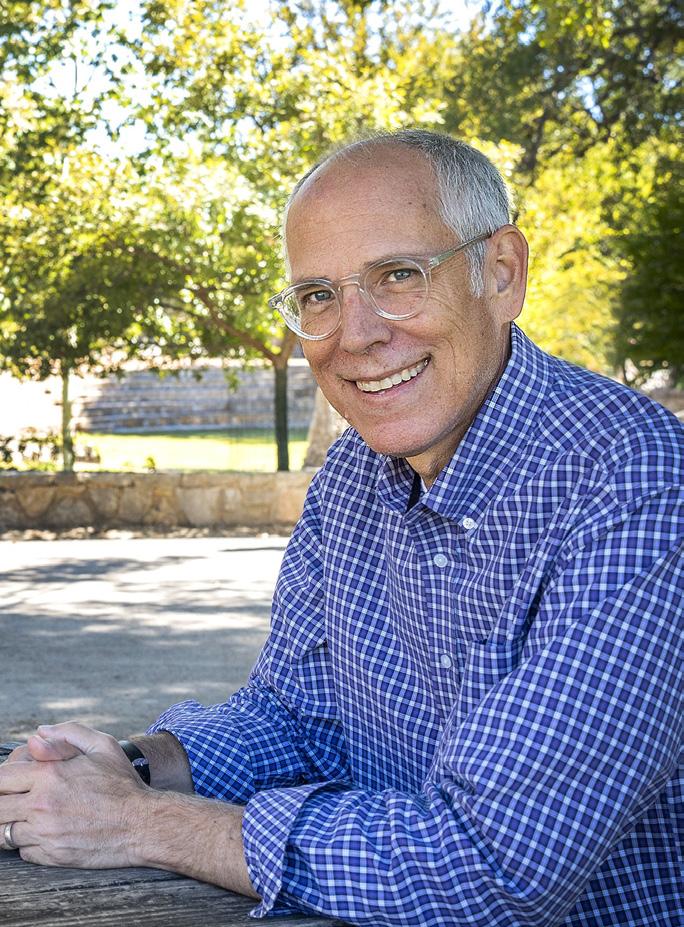

Greetings,
With this year’s endeavors, we’ve embraced strategic initiatives that propel our mission forward. Empowerment and sustainability remain our guiding lights, fostering impactful synergies across our network.
In our journey, Significant milestones were achieved through collective effort and strategic foresight. Understanding and addressing the nuanced needs of our communities has been paramount. Engagement and collaboration have driven our progress, reflecting our commitment to transformative change.
Transparency in our operations has fortified trust and accountability, essential pillars of our foundation. Harnessing innovation, we continue to push the boundaries of what’s possible. Each step forward is a testament to our relentless pursuit of excellence.
Reflecting on our collective journey, Bold strides have been made towards realizing our vision. As we evolve, so does our approach to sustainable impact. Strategic planning and execution have been the cornerstones of our success this year.
Through adversity, we’ve grown more robust and cohesive, ready to face the future with resilience. As a united force, we’re committed to advancing our mission with integrity and purpose. Resourcefulness and innovation continue to drive our efforts, ensuring meaningful outcomes for the communities we serve.
Dedication to our cause has never been more vital as we forge ahead with determination and hope. Stepping into the next phase, we are ready to embrace new challenges, driven by our shared commitment to making a difference.
Warm Regards,
 Robert Doggett
Robert Doggett

In 2023, TRLA opened our offices for the first time in three years. Our staff couldn’t wait to get back out into the communities that they proudly serve each day. Here is a small selection of photos of 2023 TRLA outreach.
Total in person attendees at outreach presentations: 39,644
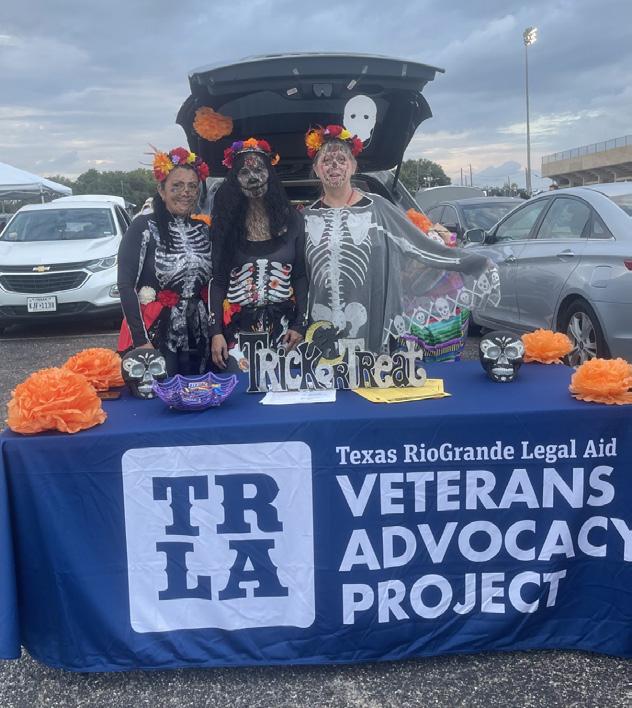
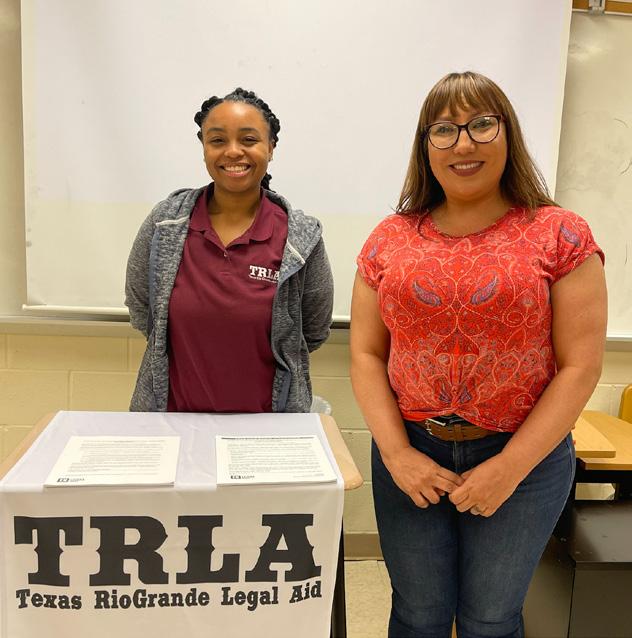

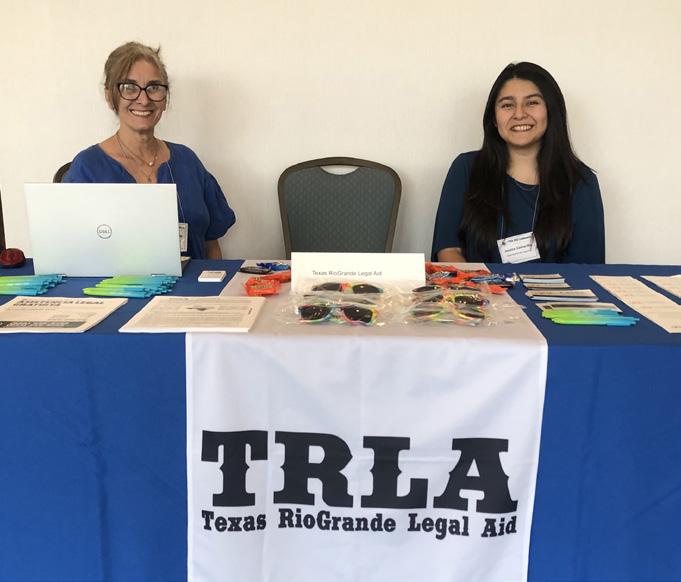
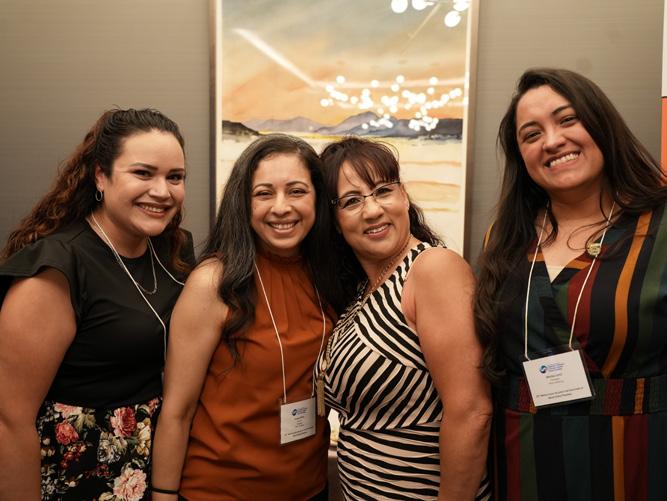



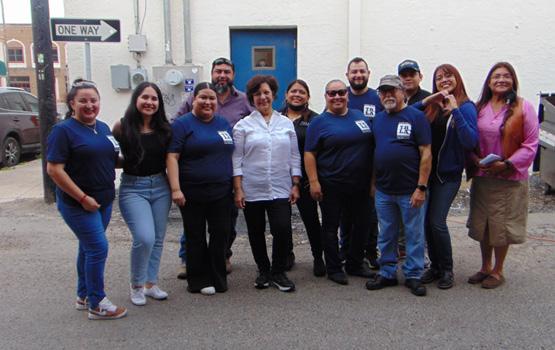

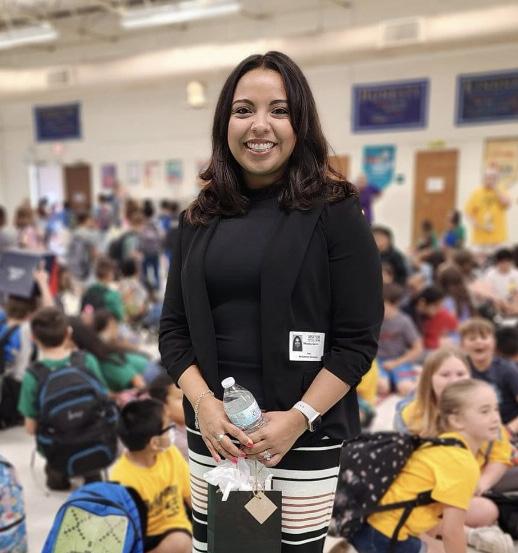


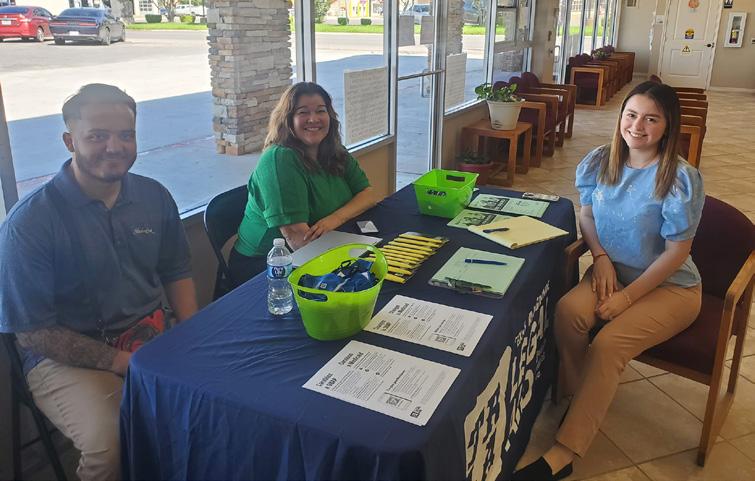

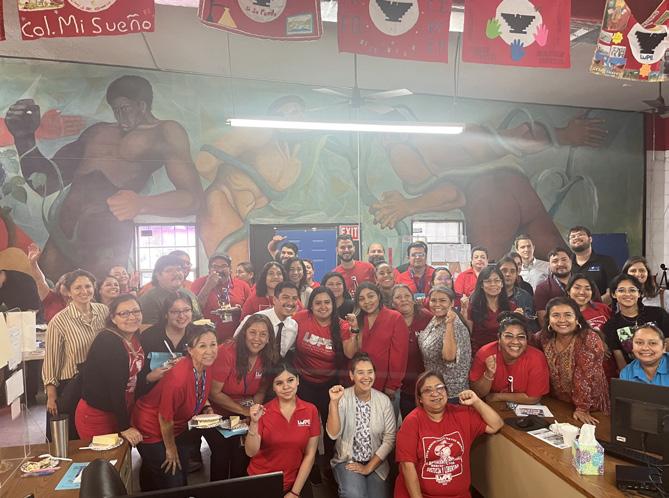

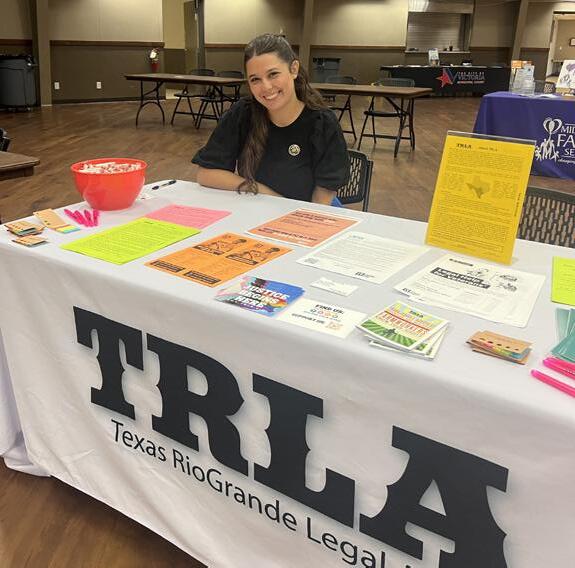
 APD and AISD Trunk or Treat event for Halloween
Judson ISD Transition Fair
Texas Victim Services Association conference in South Padre
McQueeney Elementary in Seguin ISD
Veterans Advocacy Project Ask-A-Lawyer booth in Del Rio
1st annual Farmworker Appreciation Day event in Weslaco
TRLA attends luncheon for LUPE Victoria Municipal Court Community Resource Fair
APD and AISD Trunk or Treat event for Halloween
Judson ISD Transition Fair
Texas Victim Services Association conference in South Padre
McQueeney Elementary in Seguin ISD
Veterans Advocacy Project Ask-A-Lawyer booth in Del Rio
1st annual Farmworker Appreciation Day event in Weslaco
TRLA attends luncheon for LUPE Victoria Municipal Court Community Resource Fair

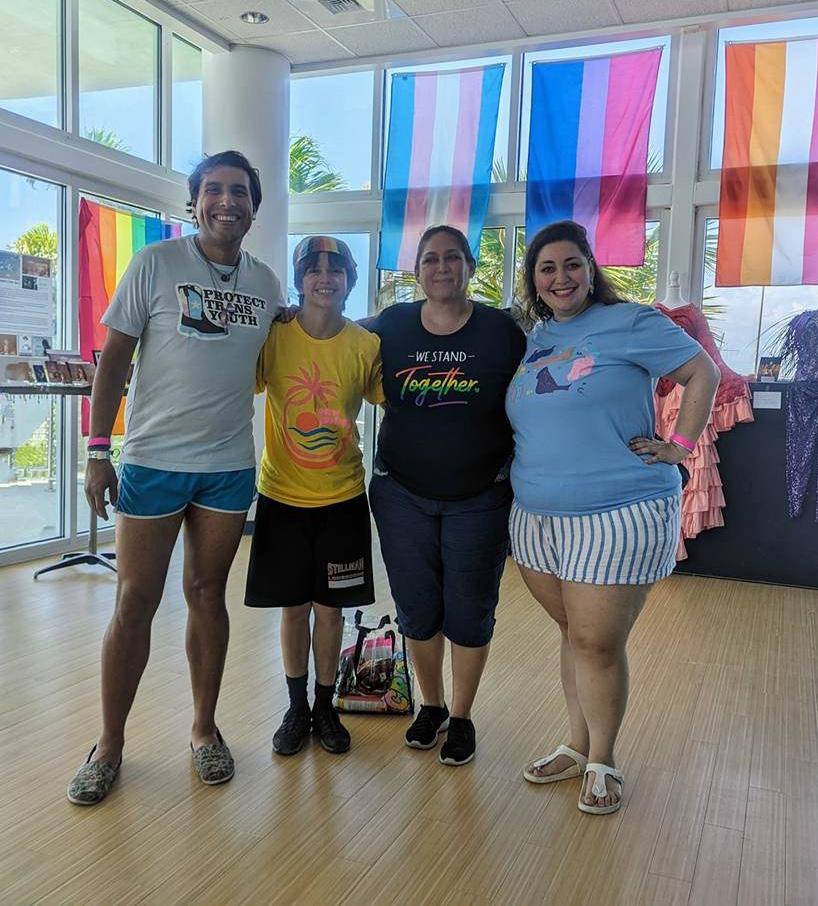

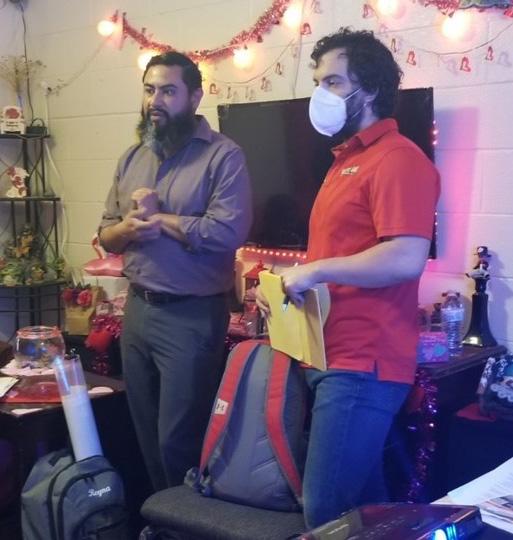

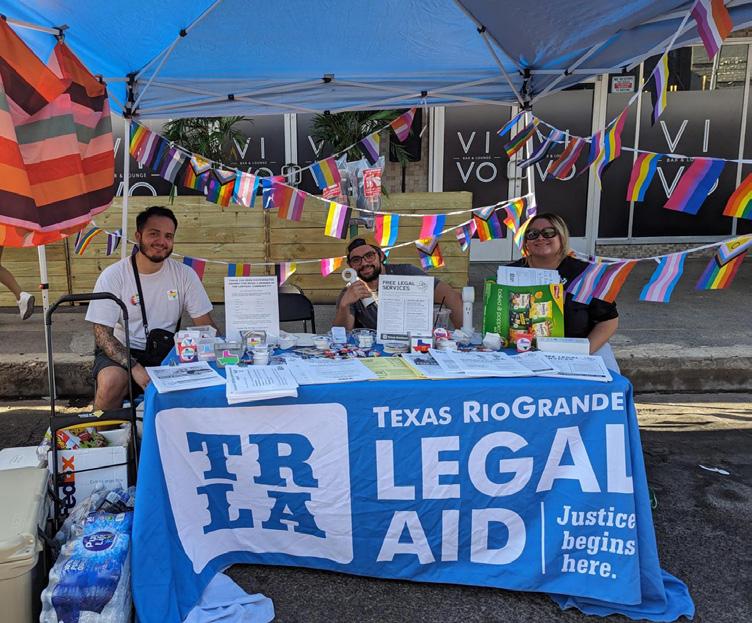

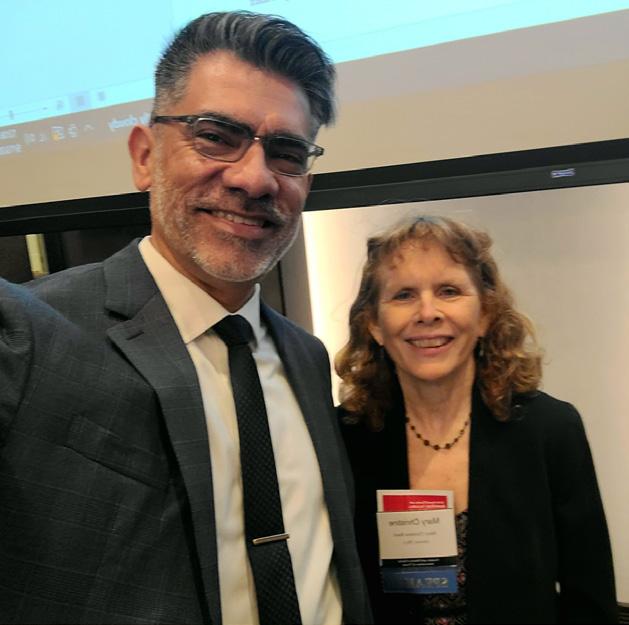
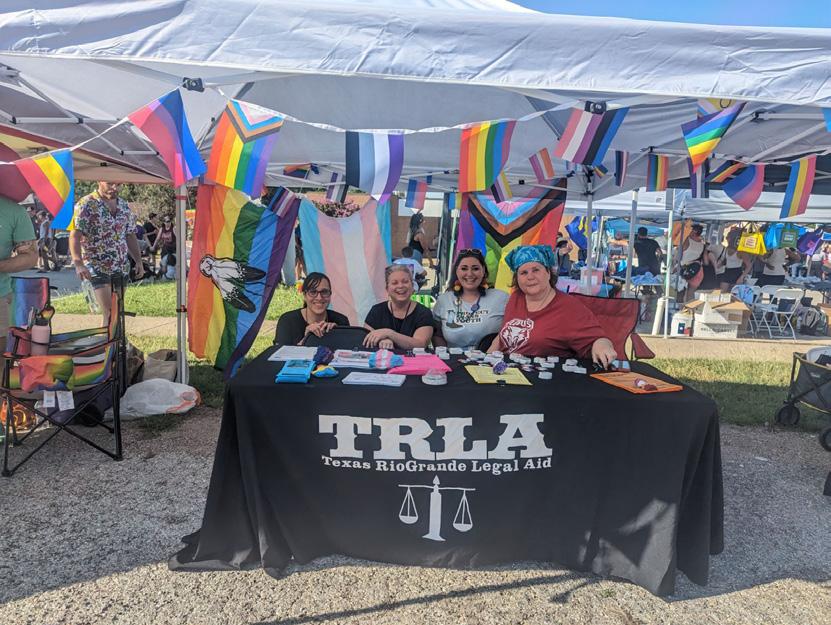

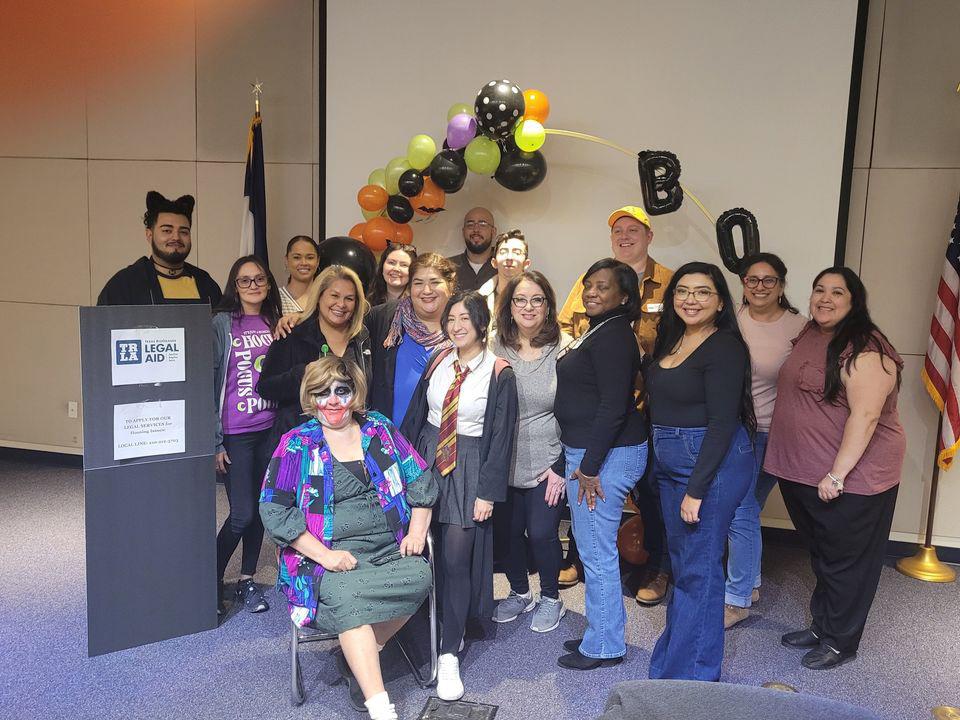


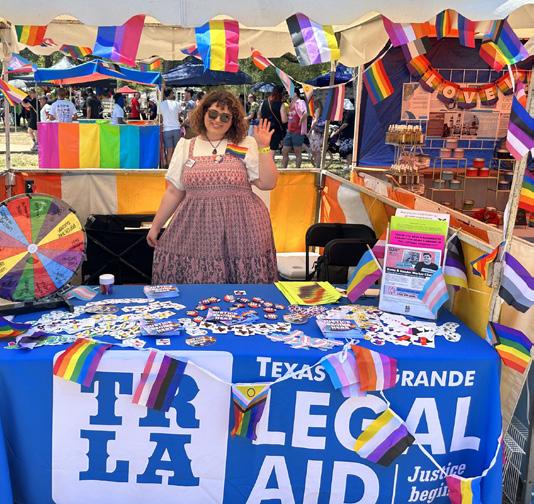


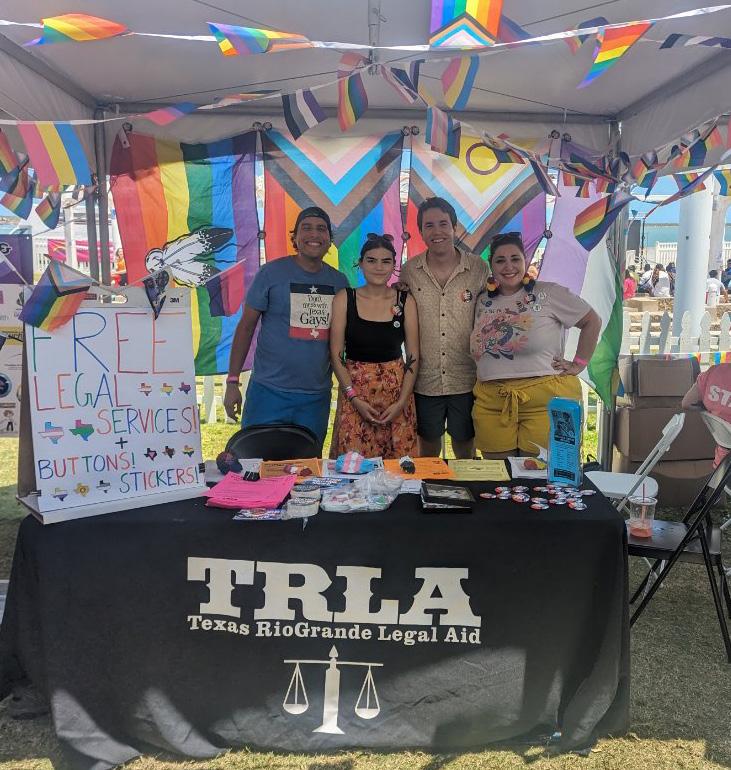


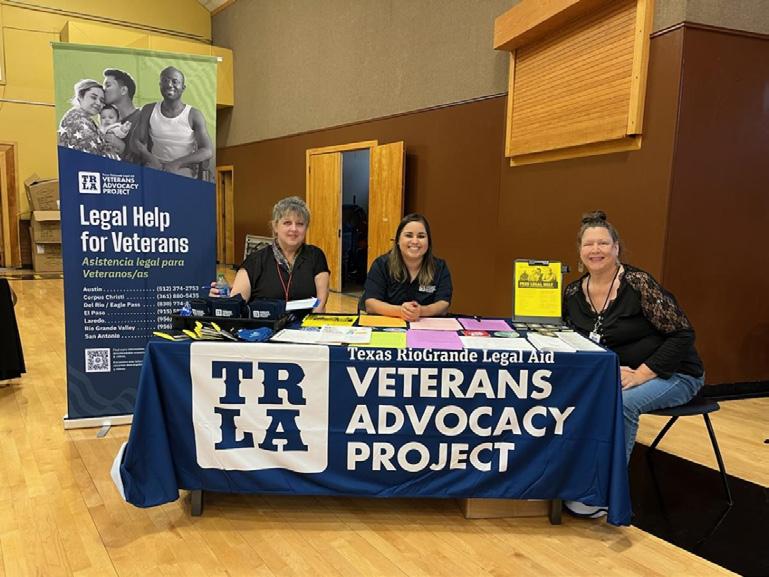
 Rio Grande Valley Pride with TRLA Client, Ollie (2nd from left)
Presentation with Vecinos para el Beinstar de la Comunidad Costera
Gateway City Pride in Laredo
Texas County and District Clerks’ Fall Conference in College Station
Pflugerville Pride
San Antonio Pride
Rio Grande Valley Pride at South Padre Island
“Renters’ Rights Power Hour: Spooky House of Repairs!” event in San Antonio
Rio Grande Valley Pride with TRLA Client, Ollie (2nd from left)
Presentation with Vecinos para el Beinstar de la Comunidad Costera
Gateway City Pride in Laredo
Texas County and District Clerks’ Fall Conference in College Station
Pflugerville Pride
San Antonio Pride
Rio Grande Valley Pride at South Padre Island
“Renters’ Rights Power Hour: Spooky House of Repairs!” event in San Antonio

Clients and Households Served: 17,447* Cases Opened: 17,584
* As of October 1, 2023, Texas RioGrande Public Defender (TRGPD) now operates independently of TRLA. For more information on TRGPD and its work, please visit its website: https://www.trgpd.org/. These numbers only include civil legal aid clients, which is why the number appears significantly lower than in prior reports .

The laurel wreath celebrates our victories over the bad actors and corporations that harm our communities. Sitting within the in nite circle, they also represent a promise to uphold the rights of the underserved.
$6,661,184
$6,661,184
$6,596,899
TRLA’s legal team is divided into seven practice area groups, which have subgroupings like the special programs indexed below. Read more at trla.org/programs.
The Bi-National Project assists low-income survivors of family violence with family law issues related to the border, such as obtaining Court orders containing provisions designed to prevent international child abduction, defense against Hague Petitions filed by perpetrators seeking the return of children to another country, and other legal interventions designed to help survivors secure safety for themselves and their children.
The Family Defense Project defends parental rights and preserves family integrity by representing parents involved with DFPS at a variety of stages, especially times where an indigent parent is not otherwise entitled to a court-appointed attorney.
This project is an intersectional effort within TRLA to combine expertise from various legal teams to serve the unique needs of low-income LGBTQ+ Texans in our service area.
Through the Medical Legal Partnerships (MLP) program, TRLA partners with medical providers in Brownsville, El Paso, and San Antonio as part of a national effort to improve the health and wellbeing of low-income people by combining the expertise of attorneys and medical practitioners.
The Mental Health Legal Project empowers persons with serious mental illness to advocate for their rights and make their own life and treatment decisions through the development of psychiatric advance directives.
The Opioid Use Disorder Legal Support Project (OUD Project) provides free, nonjudgmental legal services to low-income Texans who have been affected by opioid use. The OUD Project assists with a wide range of civil legal issues including public benefits, expunctions and nondisclosures, ID recovery, divorce, child custody, and class C misdemeanors.
The SMLS project is based in Nashville, TN, and provides free legal services to migrant and agricultural workers in Alabama, Arkansas, Kentucky, Louisiana, Mississippi as well as Tennessee.
The Survivor’s Rights Program is a collection of projects that provide comprehensive assistance to people who have experienced domestic violence or sexual assault.
LASSA is a network of attorneys trained in providing trauma-informed, client-centered legal services to survivors of sexual assault.
The Shelter Project is a partnership between TRLA and a variety of rape crisis centers, shelters, and other organizations that provide services to survivors of domestic violence, sexual assault, and stalking. Clients who go to any of our partner agencies are able to apply for our legal services right then and there.
The Texas Foster Youth Project (TFYJP) provides free legal services for current and former foster youth throughout Texas. The team helps youth with various legal and administrative matters, such as obtaining copies of CPS records, erasing criminal and juvenile records, and accessing foster youth benefits and programs that help in the transition from foster care to independence.
The phoenix soars above the elds, an homage to the legendary creature of myth that rises triumphantly from its own ashes, time and time again. The ery bird is an undeniable embodiment of resilience, strength, hope



128
FYJP total cases in 2023
99
FYJP cases that included BIPOC youth
1,601
FYJP total cases closed since inception

The Texas Foster Youth Justice Project (TFYJP), a TRLA special program, helps current and former foster youth across our state whom the system has neglected. This team enforces foster youth rights and removes the barriers they face to reaching independence by providing legal advice and representation.
“If not us, then who?” asks TFYJP Director and TRLA staff attorney Sarah Worthington. “They don’t have anyone else, and we’re honored to offer them [foster youth] practical solutions to help them get their life back.”
Mary* entered the foster care system at the age of fourteen. Within two years, she endured ten placements, including emergency shelters, psychiatric hospitals, and residential treatment centers (RTCs). At sixteen, Mary was in her first foster home in rural Gatesville, Texas. She was often isolated from her peers. The family dynamic was not ideal, and over time, tensions built in the house – culminating in a verbal
between Mary, now seventeen, and her foster mother in November 2020.
The Gatesville police were dispatched that night, and Mary was arrested and charged with assault by contact – family violence, a Class C misdemeanor, which is punishable by fine only. Mary was taken to jail, stripped of her clothes, forced into a straitjacket, and placed under suicide watch for two days.
After being released, Mary never spoke to a judge and was not given information about the offense’s disposition. She was released to her caseworker, free to never think about this dark time again—or so she thought, until two years later, when this offense would reappear. Mary’s passion for childhood development was born through her time in foster care, and she aspired to become a social worker. After she turned 18, she decided to remain in extended foster care to kickstart her education and career.
 altercation
altercation
In 2022, she applied and was hired in a childcare facility and was asked to complete a background check. Mary’s Class C family violence charge from 2020 was on her record as a conviction. Days after the background check came back, she was terminated and would not be allowed to work in a facility around children.
“I was devastated. This was a depressing time for me. I stopped all my coursework because I thought to myself, ‘What’s the point?’ I’ll never get to work with kids again,” she said.
Mary sought help from everyone she knew, community advocates and previous case workers. She heard over and over again, “There is nothing you can do.”
Until there was— in 2023, Mary was referred to TRLA.
Attorney Worthington worked on Mary’s case and recognized that Class C misdemeanor convictions are generally eligible for nondisclosure in Texas, unless the offense involves “family violence.” This was Mary’s exact situation, thus disqualifying her for this relief.
However, after reviewing the underlying court documents and listening to Mary’s story, Attorney Worthington knew Mary’s due process rights had not been protected and her conviction was wrongful. While the judge may have thought she was doing Mary a favor by granting her time served and releasing her rather than assessing a fine, the long-term collateral consequences of the conviction were not considered.
In true TRLA fashion, Worthington knew she had to think creatively about the law and find a solution to dismiss the wrongful assault conviction in Mary’s record. With the expert support of Jamie Spencer, former TRLA Managing Attorney and now Operation Lone Star Managing Attorney for Texas RioGrande Public Defender (TRGPD), Attorney Worthington filed a writ of habeas corpus. This is a common remedy used when any person is restrained in their liberty, often due to incarceration. In Mary’s case, her limitation in securing a job in her chosen field of employment was a restraint of her liberty.
An agreement from the Gatesville prosecutor was secured, and the writ of habeas corpus was filed on Mary’s behalf. The same municipal judge who entered her conviction granted the habeas corpus
application and set aside the conviction. Within weeks, the prosecutor filed a motion to dismiss the assault charge in the interest of justice, and the case was dismissed. Mary was immediately infused with the same fiery passion as before. She found a new job and has continued her education toward becoming a social worker.
“What Mary went through should never have happened, but it does all the time to youth in her position. Once the expunction is finalized, it will be as if this all had never occurred,” says Attorney Worthington.
While working on removing the assault charge from Mary’s record, Attorney Worthington was also able to seal her juvenile records – this means Mary can enter a new chapter in her life without fear or shame of her past lurking in the shadows.
“My past won’t stop me from being the person I’m meant to be. I am finally free,” says Mary.
*indicates the name is a pseudonym
1 Extended Foster Care: This is a Department of Family and Protective Services (DFPS) voluntary program available to foster youth over 18 who are under their care to continue their placement and assist with the transition to independence. The extended foster care program is only available if a placement is open.
2 Nondisclosure: A court order that seals criminal records from the public.
3 As of October 1, 2023, Texas RioGrande Public Defender (TRGPD) now operates independently of TRLA. For more information on TRGPD and its work, please visit its website: https://www.trgpd.org/.

The decade-long class action suit against the state of Texas on behalf
The ongoing battle for the well-being of children and youth in foster care in Texas has continued for 13 years. The lawsuit has shed light on the constitutional rights violations and severe harm done to the lives of those in foster care. The suit was filed on behalf of children in the permanent custody of the state and involves the Department of Family and Protective Services (DFPS) and the Health and Human Services Commission (HHSC) in their roles to protect the welfare of children in Texas.

Texas is currently grappling with a severe drug overdose epidemic, with deaths skyrocketing by over 75% in the past five years. In 2021, the drug overdose death rate reached 15.8 deaths per 100,000 residents, nearly double the 2017 rate of 9.4 deaths per 100,000 residents. Males face overdose death rates over twice as high as females, while non-Hispanic White people and non-Hispanic Black people experience the highest rates of overdose deaths among residents, highlighting significant racial disparities.
In March 2023, TRLA joined the league of harmreduction organizations and community partners addressing this crisis for low-income Texans. This pilot program aims to meet the legal needs of all those impacted by the opioid-related crisis, whether working with the individual with the disorder or their family. At its core, this project is client-specific, not issue-specific, acknowledging that an individual’s legal issues exist within an already complex web of other factors, especially medical factors.
TRLA has entered uncharted territory: serving this particular client population means building a legal service model that has not been built before.TRLA is assessing what kind of service is needed and what legal infrastructure should be added as scaffolding to existing harm-reduction organizations and recovery networks. TRLA’s OUDP team is asking several questions: How can we reach this client population? Where is the geographical need in Texas? And what kind of settings do we need to be present in to make the most impact?
Requiring court systems to understand the disorder and the necessary access to treatment and medical care that can be the difference between a client living or dying. A radical element of this project is that clients do not need to be sober to receive assistance. This population is in a particularly vulnerable position; fighting this stigma is one of the largest barriers to assistance, both for the person with OUD and the systemic resistance they will encounter. Recovery is a lifelong process and recurrence periods are a symptom of the disorder. Our clients deserve legal aid whether they are in active recovery or in a recurrence of use—the justice TRLA believes in does not discriminate.
TRLA is committed to bridging this justice gap; whether the client is experiencing a recurrence period or in active recovery, this population deserves legal help.

“Attorneys are professional harm reductionists.”
Sophie Primeaux, OUD Legal Support Project Staff Attorney
As is true with many of our practice areas, the OUD Project is working within life-and-death situations
Recognizing where this project needs to meet the clients and gaining access to these spaces has been an ongoing obstacle. Many individuals with OUD are unhoused, which can present an immense hurdle in remaining in contact with them. Without access to the internet, a cellphone, a mailing address, or accessible public transportation, this client population cannot reach us— assuming they even know we exist—and we cannot reach them. Word of our services has spread by joining forces with organizations such as Texas Harm Reduction Alliance, Corazon Ministries Harm Reduction, and Punto de Partida. These partner organizations help identify clients with legal issues and then refer them immediately to TRLA. Many of these clients are walk-ins whose government IDs have been stolen or destroyed,
have frivolous Class C Misdemeanors on their record, and are experiencing homelessness. Through outreach at those organizations and their respective counties, drug courts, OUD-related conferences, and many more community and provider-facing events, TRLA continues building an established presence and fostering trust among this client and provider community. In these spaces, our OUDP paralegals and attorneys are recognized and welcomed by opioid use disorder advocates, who are excited by the project’s existence.
The work of the OUDP Team has reaffirmed what we already know to be true: this population is discriminated against, constantly harmed by the justice system, and unaware that some of their biggest barriers in life could be absolved

through legal help. Not unlike its older, more developed sibling, the Medical Legal Partnership Project, TRLA’s OUD Project provides additional evidence that attorneys and legal staff are critical to comprehensive, holistic community care.
As TRLA enters our second year of this project, we want to foster new partnerships, solidify our existing ones, and become a name that individuals struggling with OUD know they can trust.
Project Cases in 2023
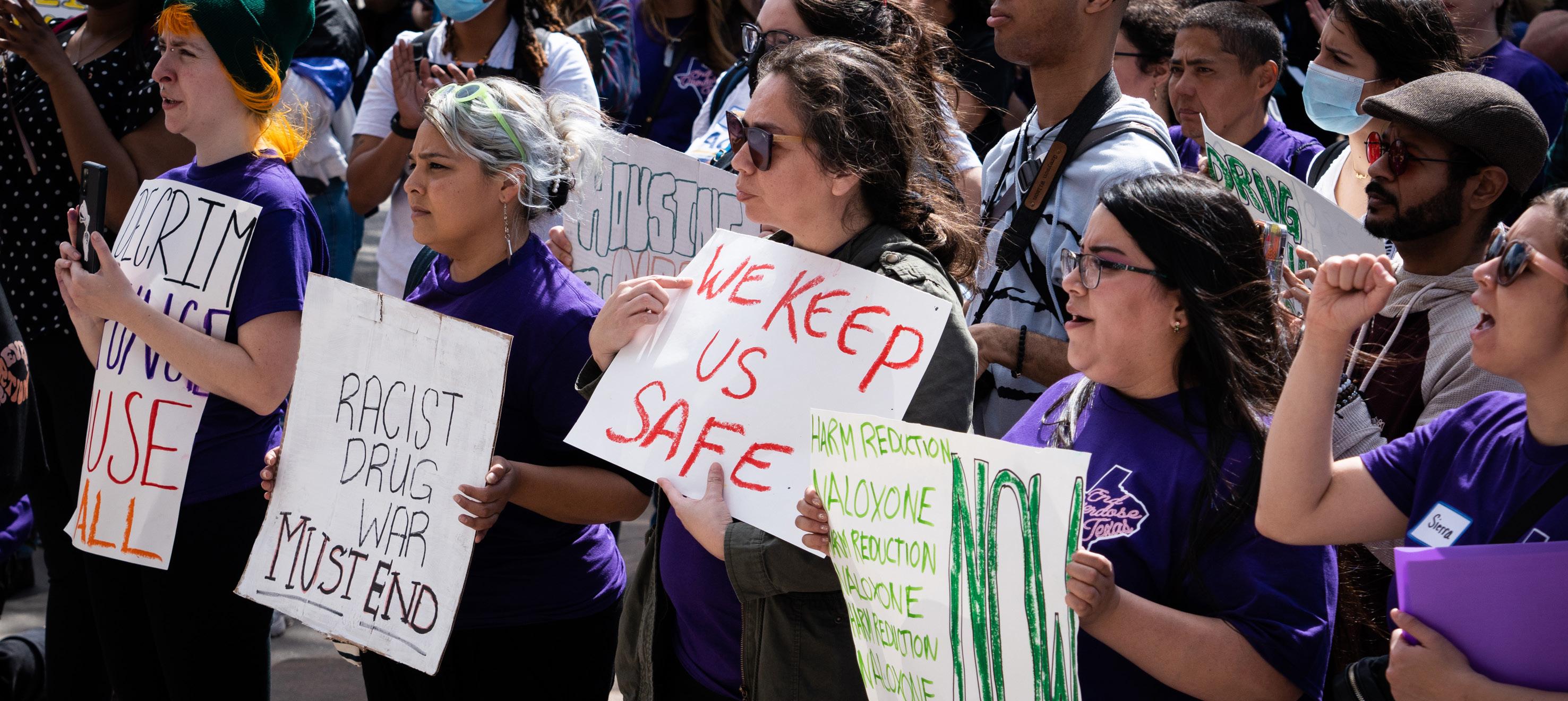

The opioid crisis, like Opioid Use Disorder, is complex. Opioid Use Disorder, often abbreviated as OUD, is a medical condition characterized by the problematic use of opioids. Opioids are a class of drugs that include prescription pain relievers like oxycodone and morphine, as well as illicit substances like heroin. When the use of these substances becomes problematic, leading to negative consequences, it is classified as Opioid Use Disorder. OUD is recognized in the Diagnostic and Statistical Manual of Mental Disorders,5th Edition.
Stressful events and loss of stability can contribute to recurrence periods. The client population we serve encounters stressors at each turn—whether that be in the legal system, discrimination in the medical system, or interaction with law enforcement that lacks proper education regarding OUD. 111

OUD does not discriminate; it occurs in individuals from all socioeconomic backgrounds. However, opioid dependence and addiction are products of a matrix including genetic, environmental, societal, and biological factors.
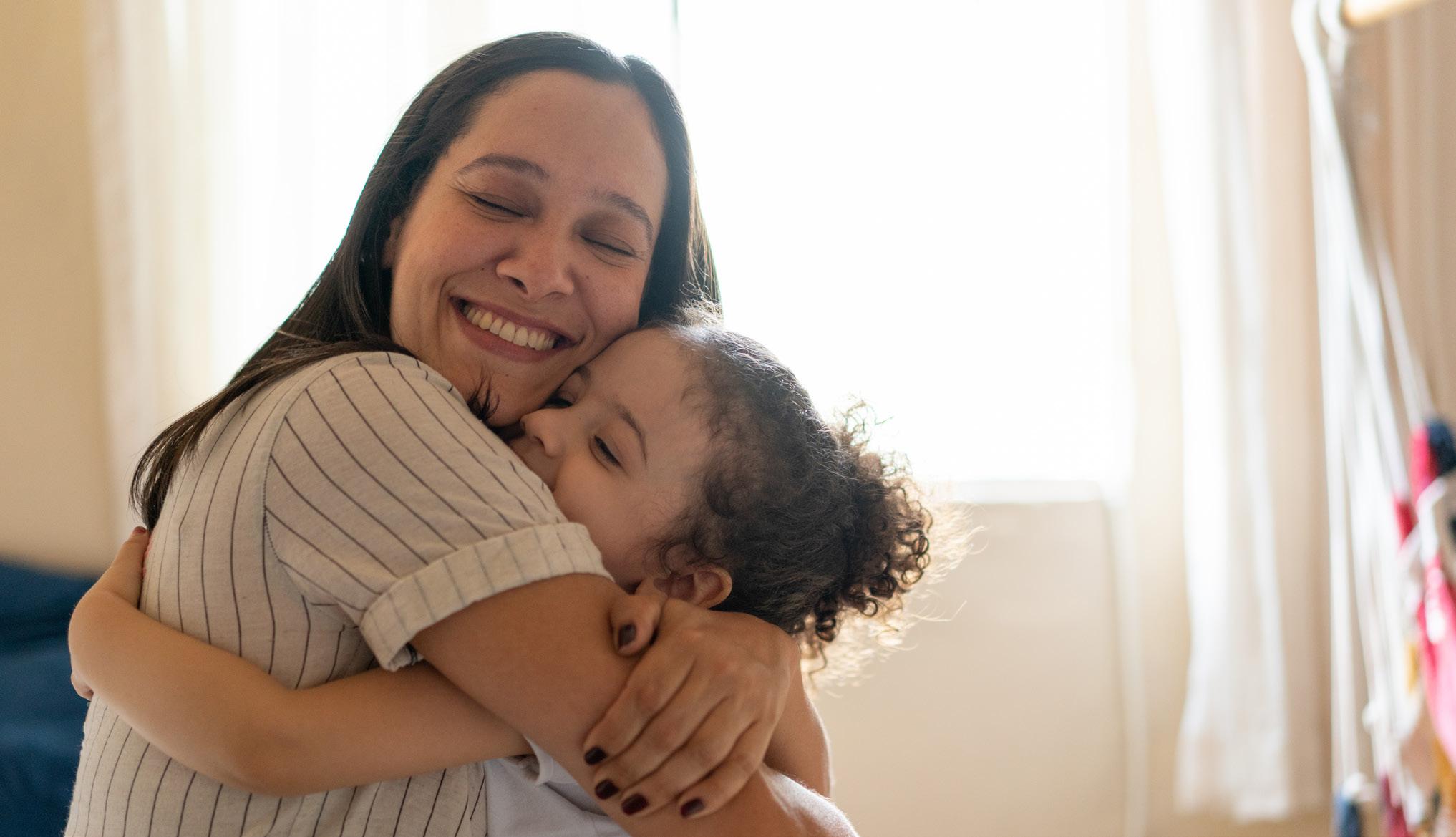
TRLA’s late Executive Director, David G. Hall, recognized that medical and legal issues are intrinsically connected. Poor health is linked to poverty, which in turn can lead to substandard housing, inadequate education, and difficulty accessing basic social safety nets.
In 2011, under Hall’s direction, we established our first Medical Legal Partnership (MLP) with the Brownsville Community Health Center. Healthcare providers and attorneys were co-located to streamline patient care and referrals. Medical patients facing social and economic barriers to their health—dirty, unsafe housing and difficult-to-access public benefits, for example—could now get aid from lawyers within the same healthcare setting. Both legal and medical staff were educated on the five broad categories associated with the social determinants of health, or I-HELP 4 :
• Income,
• Housing & utilities,
• Education & employment,
• Legal status, and
• Personal & family stability.

Through the MLP lens, these I-HELP health factors can be identified and acted on. TRLA’s wide scope of practice areas allows our advocates to work quickly from an informed, holistic approach.
Since the beginning of our MLP journey, TRLA has participated in three additional MLP programs. The most recent one was formed in the Fall of 2022 when TRLA was awarded funding to enter an MLP with Methodist Healthcare Ministries (MHM), a massive healthcare entity based in San Antonio with locations across Texas.
In 2023, the TRLA x MHM MLP pilot program was launched in two clinics in the Southside of San Antonio: Wellesley Center and Dixon Center.
TRLA attorneys and legal support staff embedded themselves into the MHM healthcare setting. This proximity allows TRLA to consult with clinic staff directly and daily, whether that be casually stopping by the breakroom for a quick chat or conducting a formal meeting. This unique environment allows community members to benefit from the presence of legal staff inside the same walls. Within this first year, TRLA’s MLP team has received over 700 referrals from MHM staff.
One of the first MHM MLP referrals, Nina*, came to MHM for medical treatment. Her healthcare provider, trained by TRLA staff with the tools and knowledge that would help reveal any legal issues, discovered that she had several unpaid traffic fines. Exacerbated by her inability to pay them, Nina was experiencing incredible stress and instability. During this time, she lost her job and her home, and her partner was moved into long-term hospitalization. She had no capacity to consider the traffic fines, as her ability to keep herself and her family afloat was front of mind. In addition, unbeknownst to Nina, the court had already issued several warrants regarding these traffic infractions.
Sharon Grady, TRLA attorney & MLP MHM team member, took on Nina’s case and asked the court to dismiss the charges, warrant, and fees. While Sharon and MLP staff worked with the court, Nina secured a new job and a travel trailer as a temporary residence. Among other penalties, a conviction on Nina’s record would cause her insurance to skyrocket to unaffordable heights and likely result in the loss of her temporary residence.
TRLA’s MLP team successfully worked with a judge to dismiss all charges and lift the warrants, with the understanding that Nina would complete a defensive driving course. Additionally, all court costs were waived.
This is what holistic client care and advocacy can look like with a simple change of venue.
*indicates the name is a pseudonym
4 I-HELP was developed by the National Center for Medical Legal Partnerships. https://medical-legalpartnership.org/need/
60 percent of an individual’s health is determined by social and economic factors such as personal and family stability, income and health insurance, immigration status, housing and utilities, and education and employment.
During the pilot year of the project:
233 Medical Legal Partnership Clients
700 Referrals from Methodist Healthcare Ministries

MHM conducts patient tracking in a medical software called NEXTGEN. While typically used to refer patients to medical specialists across the MHM system, the MLP has prompted the addition of a referral option for TRLA attorneys. Listed within a dropdown, the MLP exists as an option among other medical specialists—all a provider must do is select the MLP referral option and list an I-HELP category. The patient is then added to the legal intake calendar, a calendar available to all MHM staff.

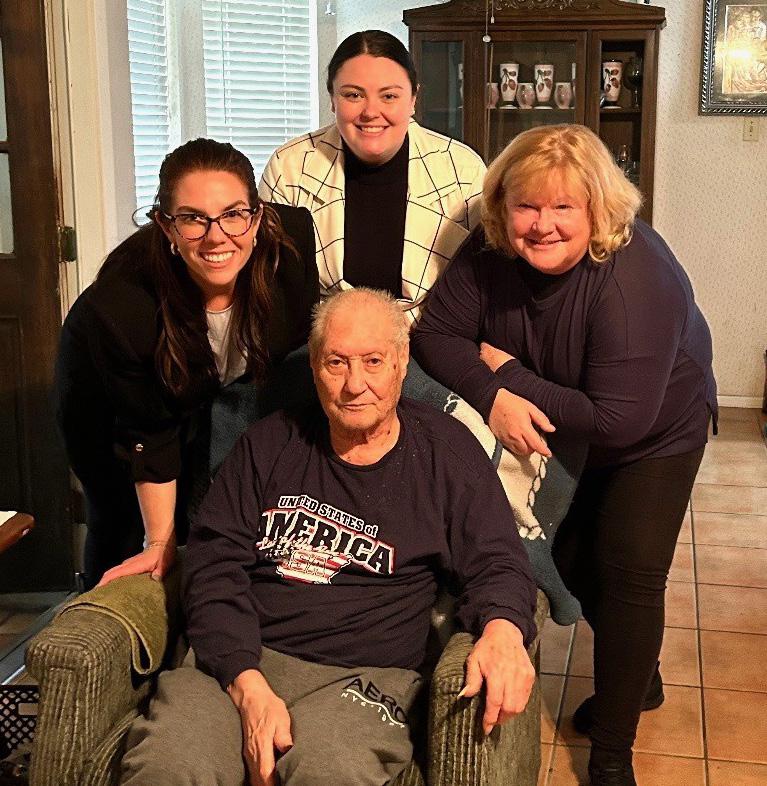
TRLA’s Veteran’s Advocacy Project (VAP) began in 2012 to provide legal services to veterans and their dependents, whether their issues are directly related to their service (such as issues with discharge status) or unrelated challenges like housing, accessing public benefits, and various family law matters. This project is supported by the Texas Veterans Commission and the Texas Access to Justice Foundation.
Noelle Burke, former TRLA VAP attorney, explains that TRLA is “able to take on cases that might otherwise fall through the cracks because we have the ability and the special funding to do this work for veterans. Often, this population can go unnoticed or find it difficult to find representation because they might have other factors, such as PTSD or mental health issues. TRLA’s special knowledge base and relationship with veterans helps us in taking on all sorts of cases.”
A local San Antonio attorney, Mr. Smith*, was suing TRLA’s client, Marco, for partition by the sale of his home, which Marco had lived in and owned for over 30 years.
How did Mr. Smith end up as the co-owner of Marco’s house?
Six years earlier, in 2017, Marco’s granddaughter, Isabel*, found herself at a loss for where to go, and Marco welcomed her and her five children into his home to live. She promised to help her impaired 80-year-old grandfather with daily activities that had gotten harder and more challenging. In 2019, Marco granted Isabel Power of Attorney (POA), assuming she would use the position to help care for him. He did not ask for any rent or help with the mortgage, but only that she helped pay for utilities since there were now six additional residents in his home. In the beginning, Isabel partially paid for the utilities but eventually stopped.
Then, in 2021, Isabel decided she was ready to move out. Marco offered to let her buy his house instead so that her children could stay in the same schools and home they had been in for several years. She agreed to this idea. They proceeded to refinance the mortgage, adding Isabel to it and transferring half ownership to her, as the bank said it was required for the refinancing.
3,022 Veterans and their family members represented across all TRLA teams
In February 2023, an elderly veteran’s son, Daniel*, reached out to TRLA due to suspected financial abuse and neglect of care of his father, Marco*. Marco became TRLA’s client after advocates noticed the strange fact pattern in the case, detailed below.
In 2022, Daniel, the client’s son, returned to town after seven years away and found the house in complete disarray. He realized his niece, Isabel, had not been taking care of Marco as he had thought. Daniel learned that Isabel did not help him maintain the home, make food, or do any of the things she had promised to do. Furthermore, he discovered that Isabel wasn’t paying anything towards the mortgage or taxes. When Daniel confronted Isabel about taking advantage of Marco, she secretly started construction on a house she would move to in October of 2022.

Isabel also went to her attorney, Mr. Smith, who had advised her on family law matters since 2015, seeking a way out of her involvement with Marco’s house. Mr. Smith convinced her to transfer her property interest to him, and he would force the sale of the house, effectively removing her grandfather from his own home. She agreed to all of it and didn’t tell her grandfather about any of her decisions.
Instead, mere days after the meeting between Isabel and Mr. Smith, Marco received a letter from Mr. Smith suing for partition (dividing the property equally between owners – in this case by forcing the sale of the property so the profits could be divided equally). The trial date was set for February of 2023, just three months from that point – a practically unheard-of timeline because it left so little time for discovery of evidence.
“It’s stressful, especially for someone who’s 86 years old, having been stable in his home for the last 30 years and suddenly having to go to court and explain why his house should still be his house,” recalls Attorney Burke.
In February of 2023, a team of TRLA attorneys—General Counsel Susan Watson, Team Managers Brittanny Perrigue Gomez and Hannah Dyal, and Staff Attorneys Noelle Burke and Clare Acosta—took the case and successfully pushed the jury trial to November.
In the meantime, Mr. Smith “moved in” to Marco’s house. He brought boxes of unassembled furniture into one of the bedrooms, installed a door with a lock, and left. Then, Mr. Smith attempted to file a temporary restraining order against Daniel, who had stepped in and was providing necessary care for Marco in his home after Isabel and her kids had moved out. Luckily, TRLA’s team was able to stop the restraining order.
When the trial date came around, TRLA’s team was set to argue that Isabel had breached her fiduciary duty as her grandfather’s Power of Attorney agent by granting herself half of his property, joining his mortgage, and then not paying a dime towards it— invalidating her right to the property she transferred to Mr. Smith. They also reasoned that Mr. Smith and Isabel conspired to remove Marco from his home illegally, invalidating both their claims to the property.
However, these arguments were never tested in court. Just moments before jury selections were set to begin, Mr. Smith approached TRLA’s team and Marco with a settlement offer. Smith would return his property interest to our client in exchange for TRLA paying his paltry court costs. Marco accepted the settlement instantly and returned to his home of 30 years with a sigh of relief and the knowledge that, once again, it was fully his.
Reflecting on the case, Attorney Brittanny Perrigue Gomez remarked, “As an attorney, witnessing the heartwrenching consequences of bad faith actions, such as the theft of our elderly client’s home, underscores the critical importance of accessible legal aid and free legal services for exposed populations. Without adequate legal representation, individuals like our client are left defenseless against those who seek to exploit their vulnerabilities for personal gain. Free legal services serve as a lifeline, ensuring that justice is not a privilege reserved for the wealthy, but a right that should be accessible to all.”
*indicates the name is a pseudonym


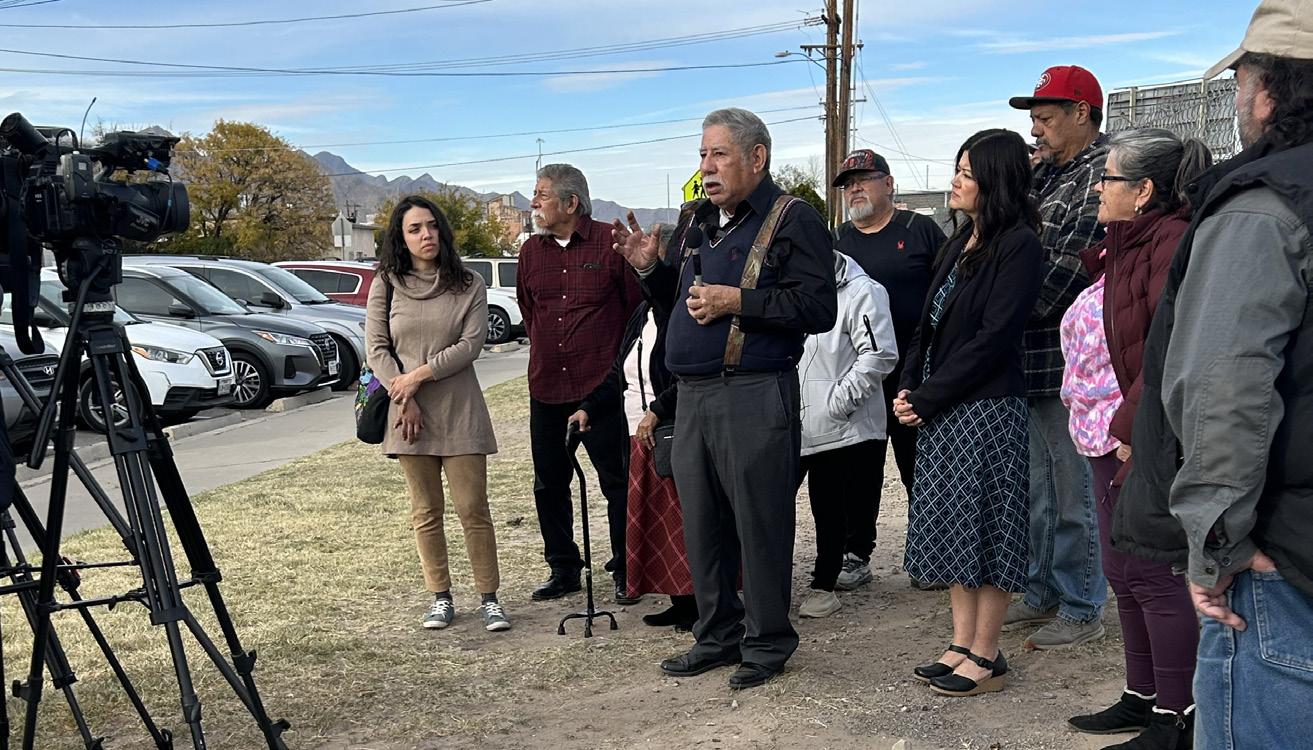


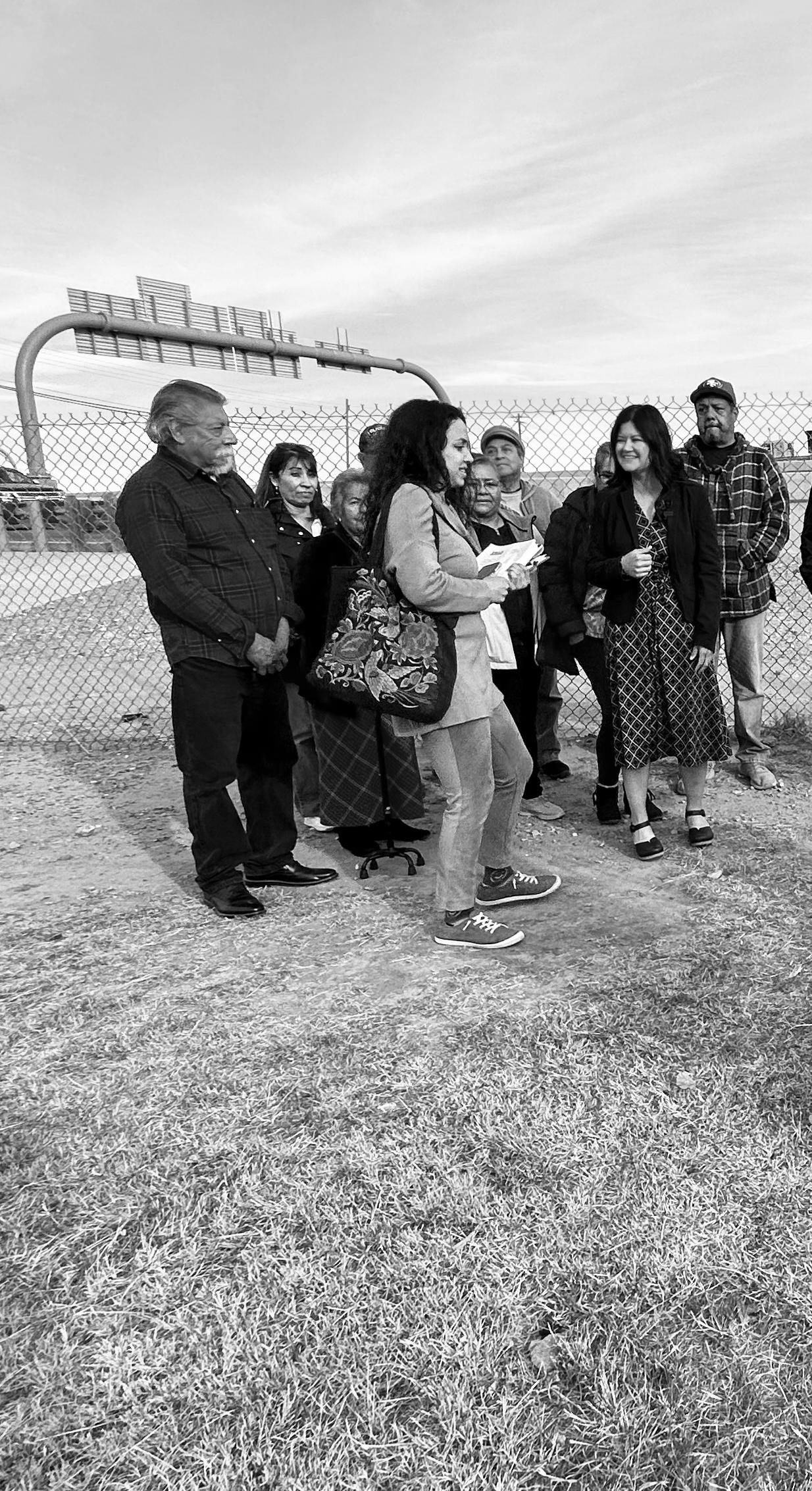
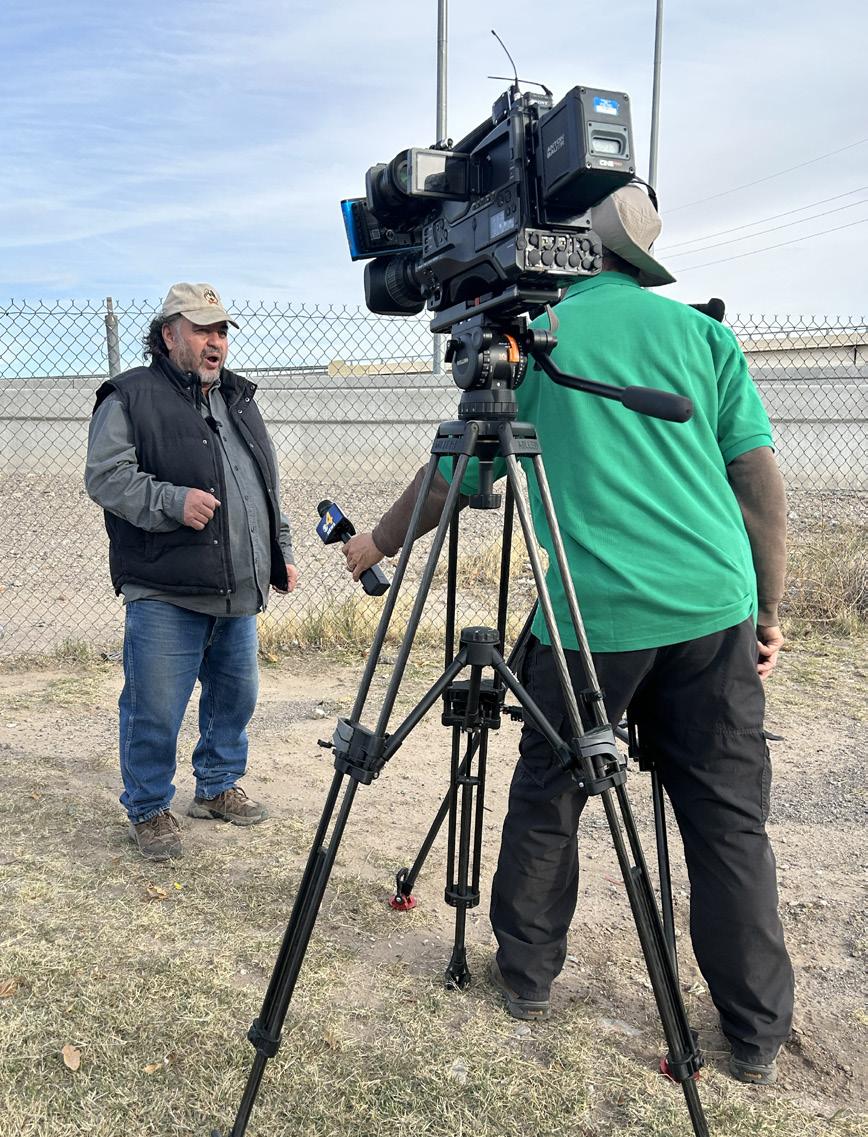


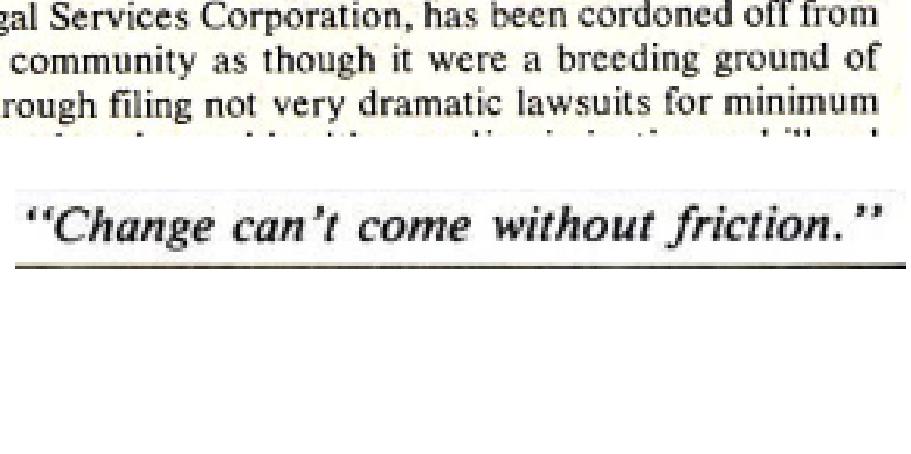
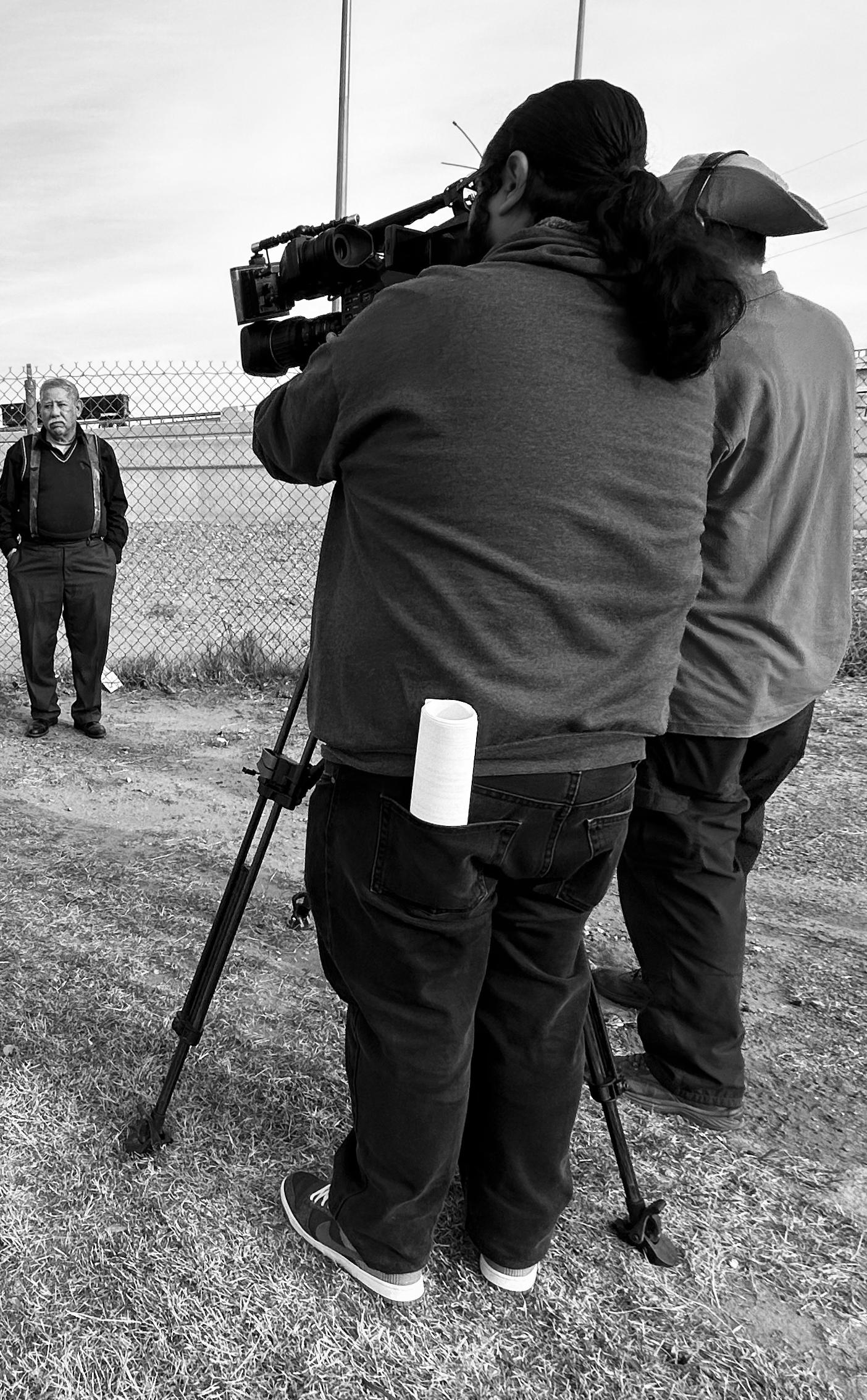
While modernization is at an all-time high, the law has not kept up—many of our environmental regulations, created in the 1970s and later amended in the 1980s, are not tailored to tackle the level of environmental degradation we face today.
When development is done equitably and with preservation in mind, diverse communities’ rich histories live beyond our time, and future generations will reap the cultural benefits. Yet the continuous need to modernize at the stake of marginalized people has made cultural preservation nearly impossible.
The United States Environmental Protection Agency (EPA) reports that, based on findings from the Science Advances Journal, 75% of all people of color with low income are disproportionately affected and exposed to nearly all 5,000 types of emission pollutants, regardless of region. The effects are devastating and create a vast environmental justice gap.
For decades, TRLA has fought for Texans experiencing environmental pollution and community degradation threats driven by irresponsible developers, industrial production, and government failures to ensure clean water for their people.
In recent years, our community preservation and environmental justice advocates have fought for residents of small historical neighborhoods in El Paso, the city of Toyah, and numerous other cities. Our team has been working on issues such as lack of access to clean water, threats of home demolitions, and air pollution.


Across Texas and many parts of the country, pockets of environmental justice seekers rally and fight against corporations and government actors. They are dedicated to preserving their community and, most importantly, their quality of life.
The wide range of TRLA’s environment and community preservation cases are interconnected, each shedding light on the fact that environmental justice is for the good of the public as a whole.
continued on next page
In 2019, Elida ‘Angel’ Machuca, a Toyah resident, sought TRLA’s help after years of Boil Water Notices (BWN) due to high levels of E. coli bacteria and turbidity issues with their local water treatment plant. Throughout the years, the city’s treatment facility has been notorious for Safe Drinking Water Act violations. Locals continue to endure severe health repercussions from the substandard water quality, exacerbated by the blistering Texas summers which only amplify the discomfort.
Nearly five years later, residents are still commuting 22 miles to the nearest city to purchase gallons of water for drinking, cooking, and bathing.
“We’ve worked with the city attorney and TCEQ to resolve this issue, but it has been proven difficult to get the plant under code,” says Paola Camacho, TRLA attorney. “The lack of cooperation and the disconnect between city representatives and what the people need is the biggest barrier to justice here.”
While the city has received funds from nearby oil and gas operations in exchange for releasing wastewater into nearby ponds, these funds have not been effectively allocated to help get the plant up to code and provide clean water to residents.
stresses Angel. “It has continued for years and continues to be done to our people. TRLA has been helpful in getting the issues looked at… and we demand justice for our people.”
Socorro and San Xavier communities are on opposite sides of El Paso. Yet, both have feared losing their homes, livelihoods, and health to the Texas Department of Transportation’s (TxDOT) road expansion projects.
Many residents from both communities have lived in these homes their whole lives – some even built the houses with their own hands. Imagine having something money can’t buy – a priceless legacy of wealth and culture, something passed down from generation to generation. That’s exactly what they have created.
Now, imagine the injustice of a road project threatening to take all of this away.
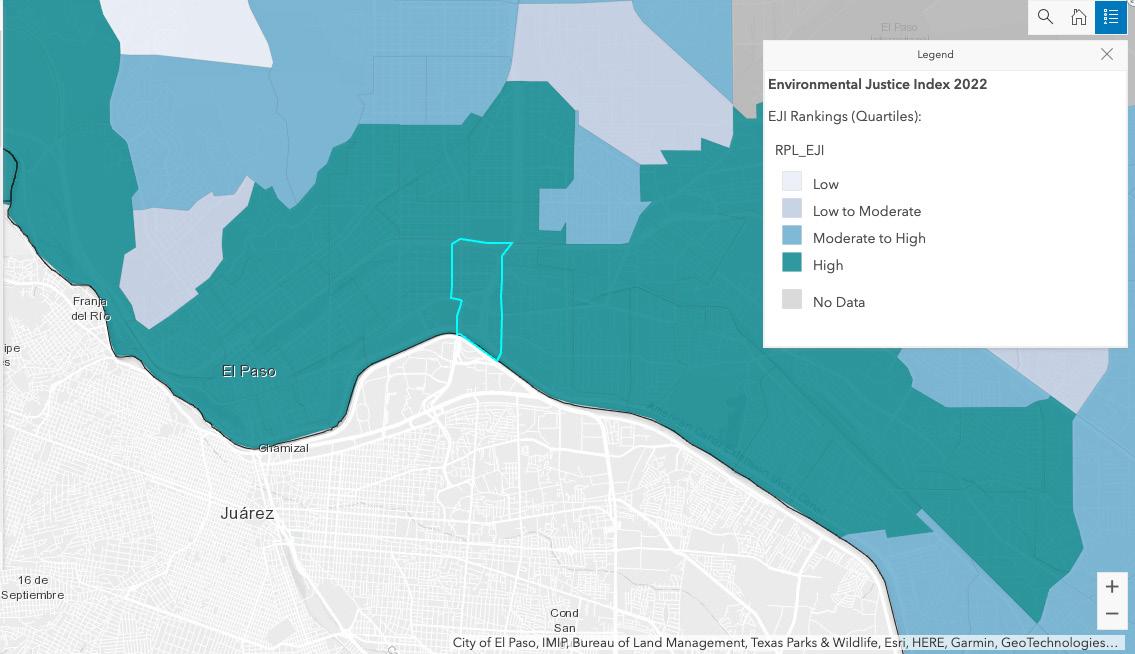
Angel and other constituents are frustrated – several times, they’ve urged local city council members to respond to the pressing water issues. With several uncontested elections in Toyah and the lack of urgency to solve the problem, constituents question the integrity of those in leadership.

In Socorro, TxDOT’s $50 million Arterial 1 road expansion, a new four-way lane road project meant to connect Socorro Road from Bauman Road to I-10, is putting 28 homes at risk of demolition and 1,000 residents at risk of displacement.
Forty-year Socorro resident and TRLA client Carmen Gonzalez is one of those at risk of losing her home. The thought is devastating – particularly because she lives on a fixed income, and the reality of her purchasing a new home would be impossible.
In 2023, TRLA pushed for a cooperative solution by speaking to the various stakeholders in Toyah, including city council members, representatives, and the office of the Attorney General, who has an open case against the city to resolve the drinking water violations. The battle is ongoing for the city of Toyah and its residents.
“The law is simple…those involved in the poisoning of our water need to be held accountable,”
TxDOT has offered the city of Socorro three alternatives for consideration, and they have the power to reject the project entirely or select an alternative.
According to the Alternative Analysis Summary Report, Alternative #1 is considered the most devasting option for residents. It has the lowest community input and potentially has the highest effects on the colonias. Alternative #2 is similar in terms of its effects on residents but would increase traffic and road usage in certain areas.
Should Alternative #1 be selected, Carmen and other residents will be affected by the government’s eminent domain power and entitled to payment for their property. In preparation for this scenario, TRLA and its attorneys on the case have held informational rights presentations with local eminent domain experts on how residents should respond.
“Projects like these attract vultures, ready to feed off residents’ fear,” says Attorney Camacho. “The government might not give them [residents] what they deserve, and third parties will offer even less. It’s our duty to ensure residents know their rights and have the ability and resources to fight back.”
Residents claim to have already received offers from third-party buyers and have been advised to decline until the city of Socorro has made a decision.
While each alternative poses a community risk, TRLA recommends Alternative #3, which affects the fewest number of homes, is the furthest from the neighborhood school (Robert R. Rojas Elementary), and passes through empty and unoccupied farmland.
In late 2023, the decision still sits with Socorro. TRLA continues to advocate for Carmen and those affected by Alternative #1 and is prepared to engage in the National Environmental Policy Act (NEPA) process to ensure all alternatives, including empty and occupied land found in Alternative #3, are considered a solution.
“The grim reality is, there’s no assurance that residents can find a home of comparable quality elsewhere. This community holds a unique essence, woven with its people and rich history,” stresses Attorney Camacho, underscoring the situation’s profound significance.
Across El Paso in San Xavier, the residents live next to the Bridge of the Americas Port of Entry (BOTA) and are surrounded by major highways, including I-10. This community has felt the brunt of years of highway expansions and increased air pollution. The residents’ homes have experienced structural damages, such as cracks in their walls and foundational and pipe damage from the heavy machinery used in TxDOT’s failed I-10 Connect Project, which falsely claimed nearby communities would face no increased harm.
The Environmental Justice Index (EJI) ranks the cumulative impacts of environmental injustices on health across the United States and indicates a score greater than 0.75 as a high prevalence of a chronic condition test. In San Xavier’s radius, the EJI ranks the overall area at 0.96, along with 0.89 and 1.00 on “Air Toxins Cancer Risk” and “Social Vulnerability,” respectively.
With unprecedented semi-truck traffic heading north and south to BOTA, the community continuously faces undeniable health risks and air pollution.
In 2023, TRLA filed an official complaint on behalf of the San Xavier community against TxDOT and the Federal Highway Administration under Title VI of the Civil Rights Act of 1964 for the discriminatory impact of the I-10 Connect Project.
5The government’s power to take private property and convert it for public use. The Fifth Amendment ensures that when the government exercises this power, it must compensate the property owners.
6This index ranks the cumulative impacts of environmental injustice on health for every census tract using data from the U.S. Census Bureau, the U.S. Environmental Protection Agency, the U.S. Mine Safety and Health Administration, and the U.S. Centers for Disease Control and Prevention.
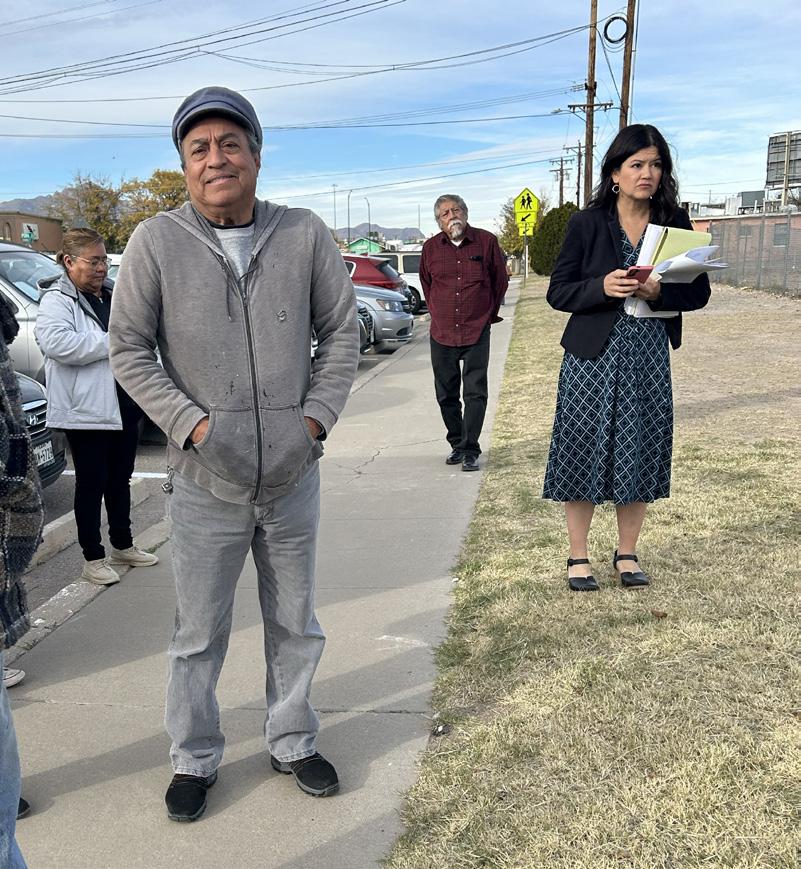
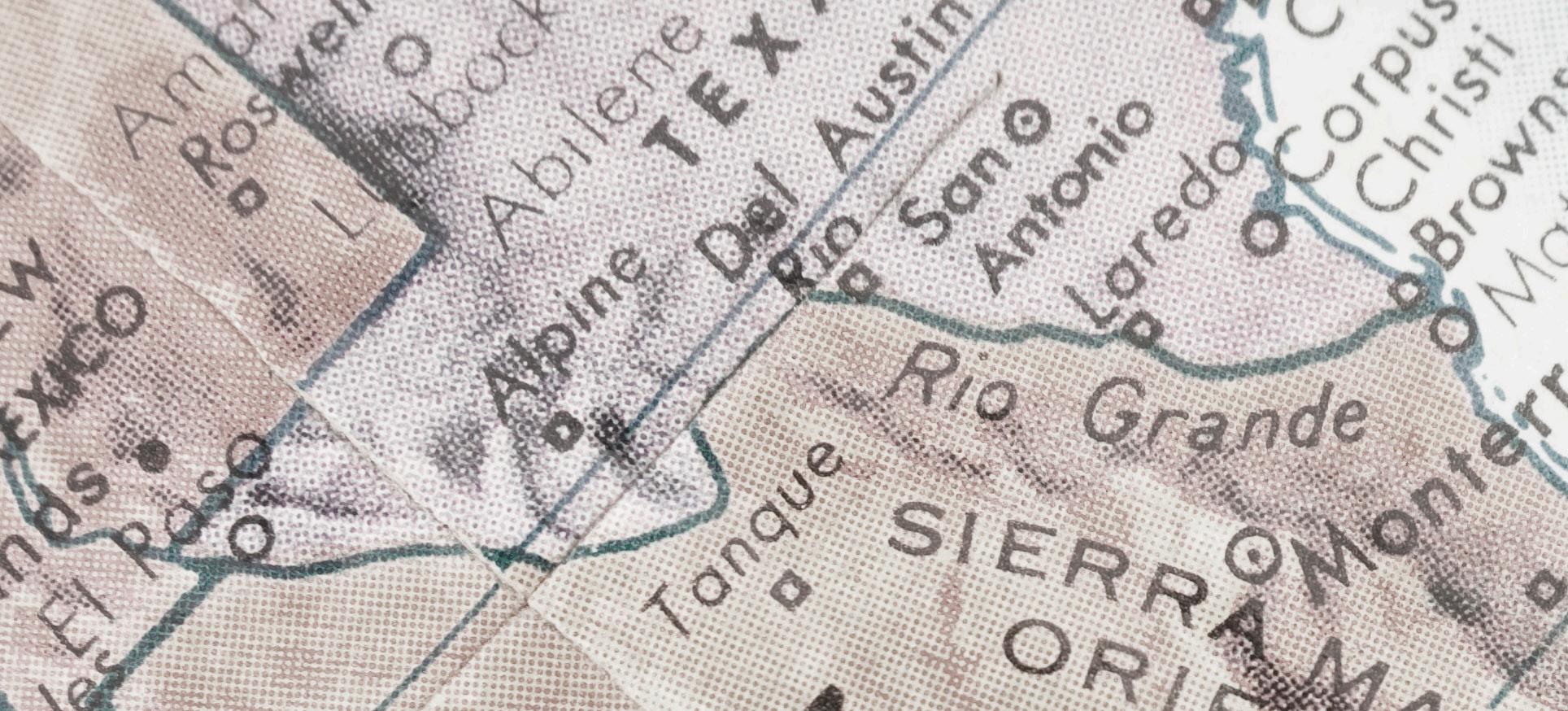

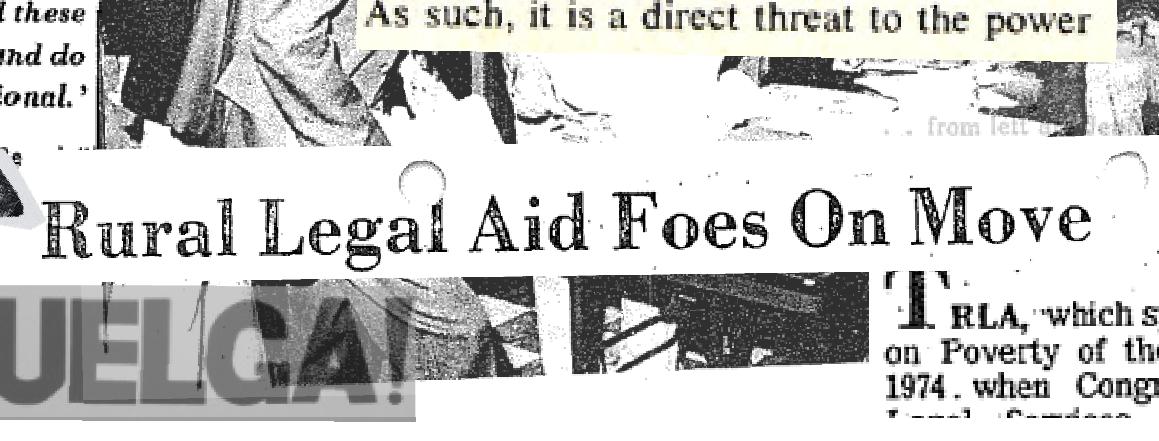
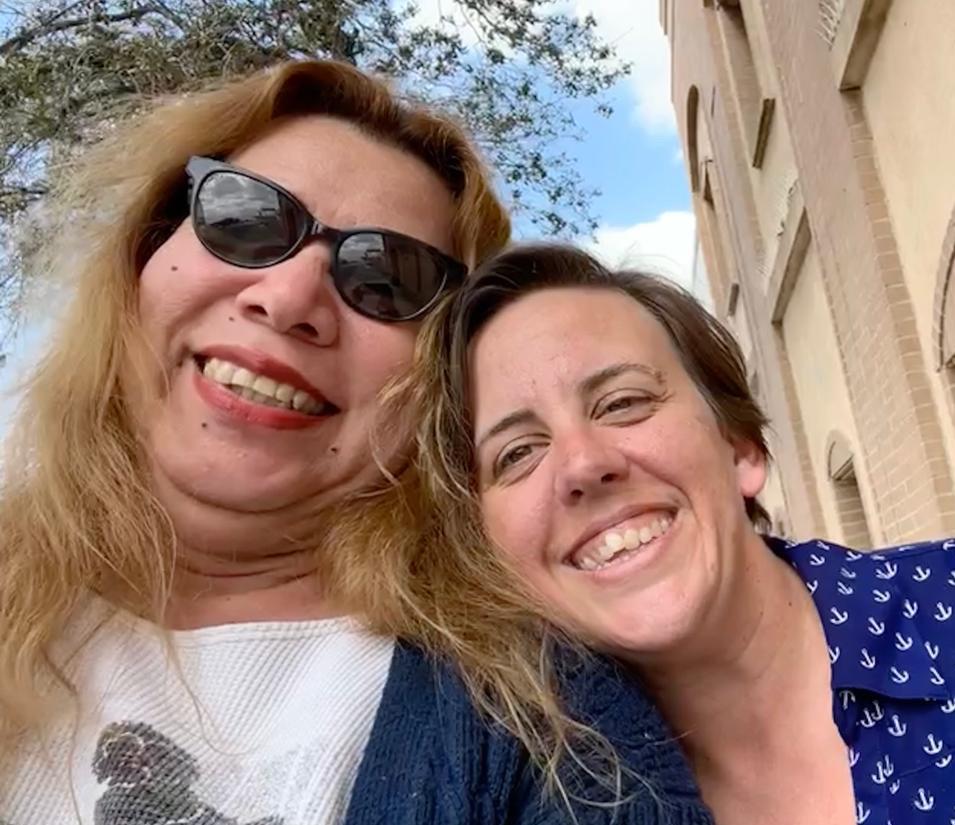
793
Clients and dependents assisted in human trafficking cases
Sky*, a 56-year-old transgender woman and a forty-year-plus established member of the Rio Grande Valley community, came to the United States as a child, seeking safety from the violence she was facing as a young girl in Mexico.
She found her way to TRLA after the death of her spouse. Not only was she working through the tumultuous feelings of losing her abusive partner of more than two decades, but she was also thrown into flux, struggling to pay the debts he left behind. As if all of this wasn’t enough, Sky also faced the reality that even though she’d married a U.S. citizen and is a long-established beloved RGV community member herself, complicated incidents in her past had not allowed her to obtain a lawful status or citizenship.

Lauren Joyner, TRLA Immigration & Human Trafficking attorney and the lead on Sky’s case over the past five years, explains, “Many of the clients that we work with are already part of the community; they’ve been here for 10, 20, 30 years. The piece they’re missing is the safety and peace of mind of knowing they won’t be detained or deported and separated from their families.”
In Sky’s case, she’d experienced domestic violence and human trafficking by her husband and by other bad actors in the past. Within the trans community, those with multiple marginalized identities— such as being a low-income, undocumented, transgender woman of color—experience disproportionate rates of misconduct and abuse,
“When I felt that I was lost, I found her [Attorney Lauren Joyner] and with true words she gave me back my hope and in time she made my dream a wonderful reality. She is my TRLANGEL.*”
*TRLA is often pronounced “Trah-la”, thus Trah-langel

including by police. Living on the border further magnifies this risk, and trans women like Sky are both uniquely vulnerable to violence and isolated from traditional sources of assistance and support. And yet, clients like Sky exemplify resilience and kindness despite their hardships.
Attorney Joyner states, “Our clients model hope and resiliency that’s just profound. It’s the reason we keep doing this work. Our clients lead the way, as always.”
After years of TRLA working on Sky’s case, including a lawsuit against the Department of Homeland Security to obtain records under the Freedom of Information Act that were vital to the immigration case, both her T Visa application and a Violence Against
T nonimmigrant status (or a “T visa,” as it is commonly called) is available to victims of human trafficking and, in some cases, their family members. T nonimmigrant status allows trafficking victims to stay lawfully in the US for up to four years with work authorization. Eventually, T nonimmigrants can apply for green card and lawful permanent resident status. (U.S. Citizenship and Immigration Services, 2023)
The Violence Against Women Act (VAWA) allows noncitizen victims of domestic violence (people of all genders, despite the name) who are abused by a U.S. citizen or permanent resident in their immediate family to apply for a green card, without having to depend on their abusive family member to file for them. (U.S. Department of Homeland Security, 2024)
Women Act (VAWA) Self Petition were approved. TRLA’s holistic legal services and collaboration across various TRLA teams resulted in Sky correcting her gender marker, accessing public benefits, receiving healthcare, and starting counseling.
As of 2023, with the help of Attorney Joyner, Sky has now achieved her goal of obtaining lawful immigration status and employment authorization, and she has a clear pathway to becoming a lawful permanent resident in the near future.
*Indicates name is a pseudonym
In the 1990s, TRLA advocates identified the need for sensitive, trauma-informed support for clients working through many family law issues. Thus, the Shelter Project, formerly known as LASA (Legal Alliance for Survivors of Abuse), was born. This special project was created to support survivors of domestic violence, sexual assault, and stalking in accessing legal help through community partners like rape crisis centers and shelters.
As of 2024, TRLA has joined forces with 39 organizations across our service area. Our Shelter Project team provides in-depth training to our partner advocates to ensure that they know about the most current family law basics, keeping client privacy at the forefront of their practice, as well as screening for legal issues within a typical shelter consult. Training for our partners is conducted on an as-needed basis (some topics are specifically requested by certain shelters depending on their needs and client population) as well as yearly at our Domestic Violence and Sexual Assault Cross-Training Conference.
This cross-training began in the early 2000s to connect advocates from all over Texas. In 2023, our 22nd year, we hosted advocates from across the country. The cross-training is an opportunity for legal advocates to learn from each other and share best practices: attorneys, community advocates, and social workers receive training from local, statewide, and national experts on a wide range of issues affecting survivors of domestic violence and sexual assault. Topics include subjects like housing problems, technology and safety, stalking prevention, and the anatomy of how a criminal case is prosecuted. The conference also provides vital opportunities for networking, information sharing, and education to equip advocates with tools to serve survivors in Texas better. All participants leave the conference with an updated copy of the “Legal Issues Manual for Shelters” authored over the last 30 years by TRLA attorneys, law students, clerks, and paralegals.
When a shelter advocate identifies a client with a legal issue, they are referred directly to our trauma-informed Shelter Project team for a full legal intake. Our regular intake line also screens for violence and abuse; however, this direct referral system allows survivors to receive concurrent
care. This model is a necessity for these clients. The timing of the legal system rarely matches the pace of everyday life, and the reality of the legal landscape for survivors is difficult to traverse, spans years, and risks re-traumatization. To thwart these difficulties, TRLA has ensured that clients receive continued care throughout their legal issue. They are referred internally to our Social Work team, and TRLA staff remains in contact with the original referring organization.
Rarely do we encounter a survivor referral who only has one legal issue. An initial screening for a divorce can quickly become a need for a Protective Order, modifications to an existing Custody Agreement, application for Crime Victims Compensation, and even various immigrationrelated needs. TRLA’s holistic legal services model makes addressing multiple issues like this possible.
In recent years, TRLA has even begun representing our partner organizations as entities in legal proceedings— an extra layer of support for advocates and clients alike. Organizations are subject to grand jury investigations and subpoenas, meaning the privacy and safety of client survivors could be put at risk should the process proceed without the legal intervention by TRLA staff.
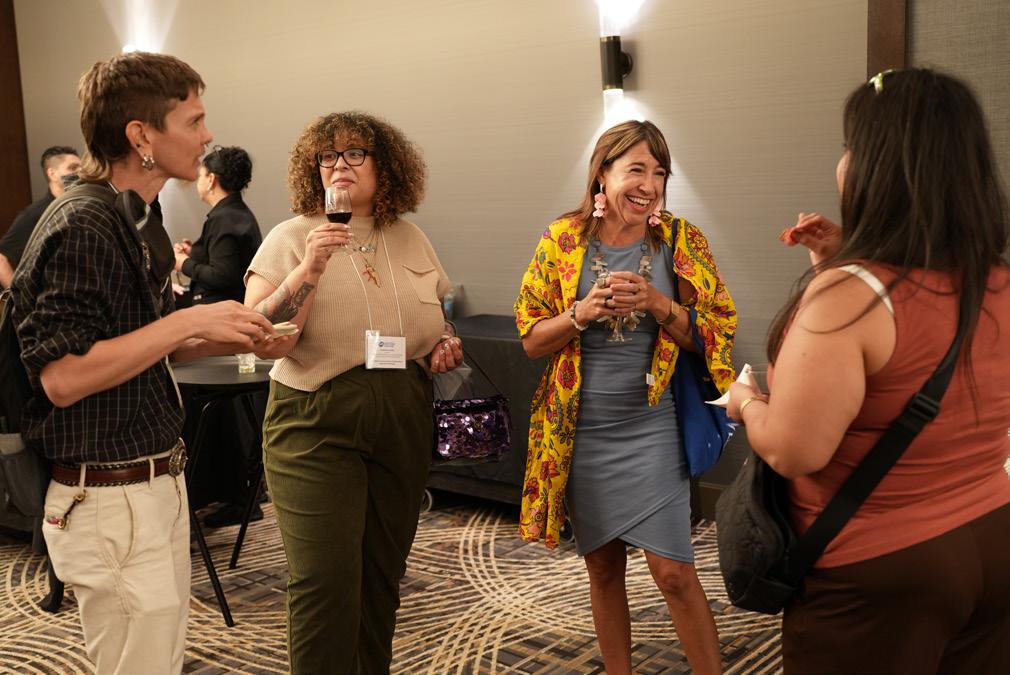

Shelter cases opened and closed in 2023
Asian Family Support Services of Austin
Austin Literacy Coalition
Safer Paths, Pleasanton
Casa de Misericordia, Laredo
Center Against Sexual and Family Violence, El Paso
Comal County Crisis Center, New Braunfels
Family Crisis Center of the Big Bend, Alpine
Family Crisis Center, Bastrop
Family Crisis Center, Harlingen
Family Violence Prevention Services, Inc., SA
Friendship of Women, Brownsville
Crisis Center, San Marcos
Highland Lakes Family Crisis Center, Marble Falls
Hill Country CARES, Kerrville
Hill Country Community Needs Council, Fredericksburg
Hope Alliance, Round Rock
Kendall County Women’s Shelter, Boerne
Mid-Coast Family Services, Victoria
Mujeres Unidas, McAllen
Rape Crisis Center, San Antonio
The SAFE Alliance, Austin
Wintergarden Family Violence Center, Carrizo Springs
YWCA, El Paso
New Horizons, Del Rio La Posada, El Paso
The Purple DoorCorpus Christi
SAMMinistries, San Antonio
US Airforce - Domestic Violence Advocates, San Antonio
BCFS, Del Rio
Providence PlaceMariposa House, San Antonio
Magdalena House, San Antonio
Lila Smith Safe House, Fort Stockton
Grace Center,


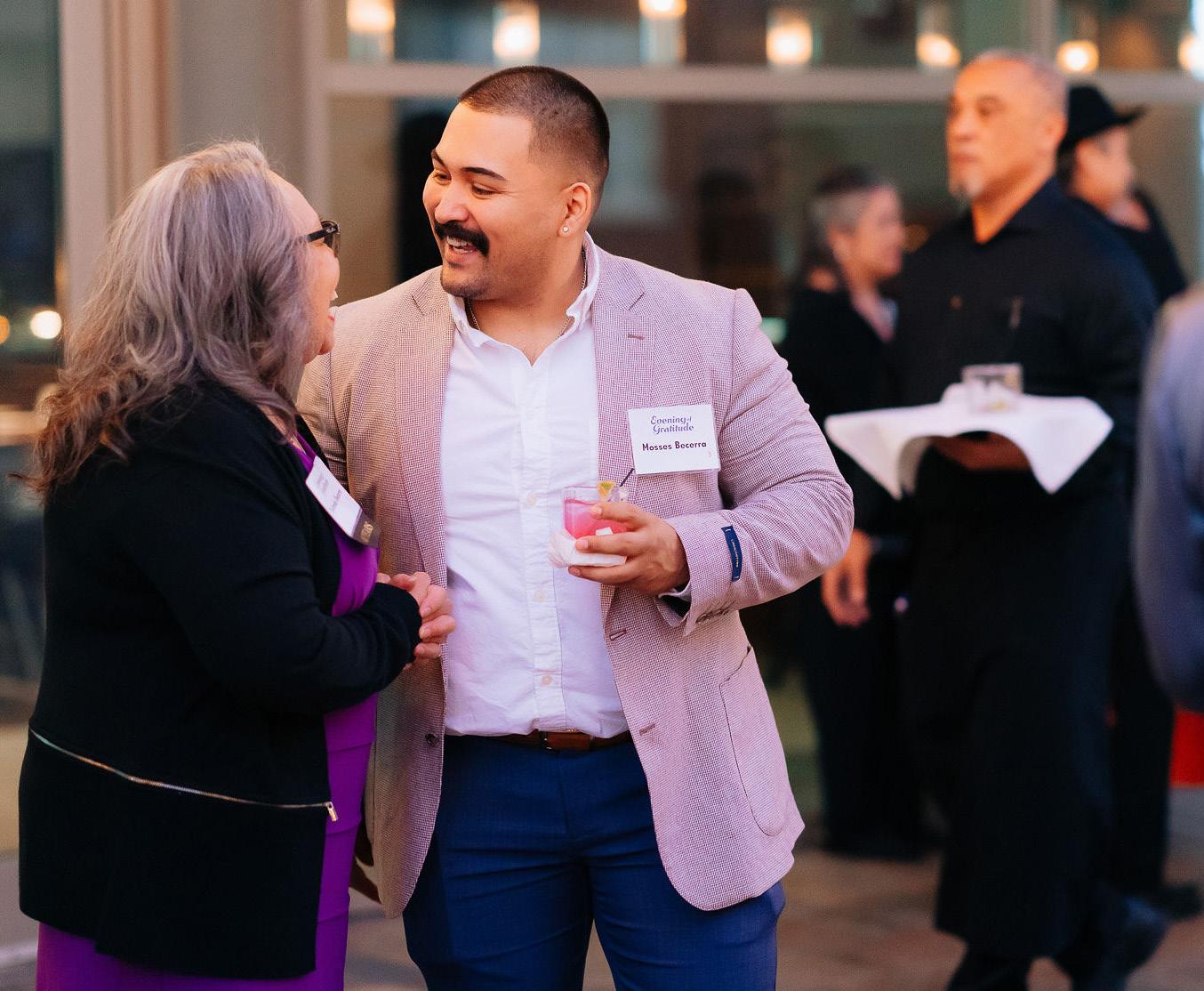
Hatching is an artwork technique o en used in woodcut and linocut printing that involves creating lines to create texture, depth, and shading. Throughout history, woodcut and linocut prints have been used to express political concerns and achieve social reform.
182 Pro bono cases taken by private attorney volunteers
Private attorneys donated the equivalent of $970,863 in pro bono services*
* Using the national average billable hour of $327, reported by U.S. News & World Report in the March 2024 article, “What Does Hiring a Lawyer Cost?”

We are immensely grateful for all our generous donors and ask that you consider making your gift recurring the next time you donate with us. Our monthly donors are our “Petitioners of Justice” – a club with special perks like a pin to wear to our events, impact newsletters, and a discount on tickets to our annual Evening of Gratitude. Plus, the benefit of knowing that you’re contributing to our stable monthly revenue so that we can address both emergencies and the everyday legal needs of low-income Texans!
Visit trla.me/donate and select ‘monthly’ for your donation to join
We have plenty of opportunities for pro bono work – in 2023, our volunteers donated over 2,900 hours of pro bono service. The justice gap persists, and private attorney involvement is vital for assisting as many people as possible.
Visit trla.me/probono to learn more
We’re always looking for fantastic organizations in and outside of our service area to partner with, whether that’s to host a joint event or legal clinic, sponsor, donate in-kind, or create a custom partnership opportunity.
Contact us at donations@trla.org today
For jobs, internships, clerkships, fellowships, and more...
Check out trla.me/careers
At our annual Evening of Gratitude held in San Antonio in early December, we celebrate our donors, volunteers, staff, and board members who make our mission possible. We would love the chance to meet you in person there, share a meal, and get to know you better!
Learn more at trla.me/2024EOG
Create a lasting legacy of justice by remembering TRLA in your will.
Check out our Donor FAQ page to learn more: trla.me/donor-faqs
CONNECT WITH TRLA ON SOCIAL MEDIA
@texasriograndelegalaid facebook.com/TRLegalAid linkedin.com/company/trla
These individuals gave to TRLA on a monthly basis in 2023. We like to call this group our “Petitioners of Justice” for adding legal aid to their monthly budget!
Alex Abdun-Nabi
Hannah Allison
Sidney Beaty
James Bennie
Eric Breckinridge
Joseph Dubin

Thomas Finucane
Samantha Ford
Sarah Hay
Barbara Hill
Lisa Jacob
Rally Jinx
Thomas Koren
Robert Lewis
Jordyn
Middlebrooks
Dr. Elizabeth Mueller
Julia Reza
Yol-Itzma Aguirre
Margo Allison
Constance Anderson
Antonelli’s Cheese Shop
Yolanda Armendariz
Eleanor Arnold
The Astros Foundation
Bankruptcy Law Section, SBOT
Hannah Banks
Lisa S. Barkley
Diann M. Bartek
W. Stephen Benesh
Jessica Bernstein
Mara Blatt
JBligh Giving Fund
Anastacia Bloch
Camilla Block
Barbara Bailey Bogart
Janee Briesemeister
Jeremy Brinster
Steven Brocksen
Richard Burch
Don and Leslie Bush
Monica Bustamante
Christopher Cain
Maria Amelia Calaf
Chris Canales and Nora Rose
Veronica Carbajal
Carlton Carl
Andy Carson
Glenys Chafin-Garrett
Justin Roel Chapa
Chaparral Ice
Jeanne Chastain
Rocio Chavez
R. Leslie Choi
Rhonda Sullivan Cleaves
Community Shares Inc
Shannon Connellly
Barbara Cramer
Micah Culpepper
Richard C. Danysh
Jackie Davis
Janice & Don Day
Rebecca Delgado
The Janet R. Dewey Family Fund
Monica Diaz
Kevin Dietz
Sami DiPasquale
Lisa Ann Doggett
Daniela Dominguez
The Donilon Russell Charitable Fund
DLA Piper
Charissa Drengsen
Daniela Dwyer
Sara E. Dysart
Kimberly Eaton
John Eckberg
Susan Edelstein
El Paso Women’s Bar Association
El Paso Family Bar Association
Javier Espinoza
Estancia del Norte
Margaret Fitch
Judy Flanagan
Johanna Flores
Marisol Flores
Gerald A. Fohn
Joe Gagen & Joanne Hopkins
Hon. Maya S. Guerra Gamble
Hannah Gano
Karina Garza
José Garza
Frank Genco
Elizama Gonzalez
Vanessa A. Gonzalez
Yasmin Goodman
Andrew Gould
Marsha Griffin
Andrew L. Grohe
Jack Gullahorn
Hai Hospitality
Kelly Haragan
Sofia Harber Bowden
Isaac Harrington
Sarah L. Heather
Tim Helmers
Ken Waitz and Jessica Henry Charitable Fund
Myron Hess
Robert Heyman
Christopher Robles
Hillary L. Schrenell
Deanna Segura
Daniel Sharfstein
Douglas Stevick
Abby West
Josiah and Merlyn Heyman
Hiatus Spa + Retreat
Ronald Hicks
Chavez Horacio
Bob & Janie Houck
Carmen Irene Huerta-Perez
Leslie Hyman
Cathryn Ibarra
Walker Interrante Family Fund
Raquenel Jackson
Jimmy Janacek
Nancy M. Johnson
Tami Keeling & W. Lee Keeling
Michael G. Kelley
Erin Kessler
Kirkland & Ellis Foundation
David Kong
Charlie Kupperman
Jared Lackman
Lake Travis Zipline Adventures
Joseph Lawson
Dr. Terri LeClercq & Jack Getman
Helena Lee
Laura Lein
Linrya Justice Center
Angela Littwin
Lollicakes by Kimberly
Monica Lopez
Cullen Macbeth
Ballroom Marfa
Sheryl & Michael Markman
Janet Marticke
Katie Martinez
Graciela Martinez
Elizabeth McGiffert
Christopher McRorie
David T. McTaggart
Yolanda T. Medina
Christopher Meisel
Messina Hof Winery
Alberto “Beto” Mesta
Daniel K. Miller
Dr. Kristi Milowic
Lynnelle Loke Moore
Lew & Laura Moorman Charitable Fund
Leslie Murphey
Charles Murray
Karen M. Neeley
Robert Newman
Kylie Norris
Helen & Laurence Norton
Jené O’Keefe Trigg
Pamela Olsen
José Ozuna
Mark Padellford
Diane Palmiotti
The Paramount Theatre
Catherine Parsley
Marta Prada Peláez
Playland Skate Center
Cindy Polinard
Marcia Rachofsky
William Ralston
Lakshmi Ramakrishnan
Renate Rand
Hon. Ronald Rangel
Marianne Reat
Mary Christine Reed
Roger H. Reed
Reid, Collins, & Tsai LLP
Ana Reza
Javier Riojas
Geoffrey Rips
Andrew Rockett
Antonio Rodriguez
The Romero Williams Family Fund
Katherine Rosen
Carolyn N. Rosenstein
Round Rock Express
Yvonne Rutkowski
Javier Saenz
Shahram Samie
Kevin Sanchez
Leticia M. Saucedo
Schulze Family Fund
Herbert Schwetman
Denise Scofield
Bernadette Segura
Jerrilyn Shaffer
Arthur “Art” Silbergeld
Moses Silverman
Joyce B. Smith
Hon. Selena N. Solis
Southern Attorney Search & Staffing, LLC
Miriam Spiro Charitable Giving Fund
Dr. Paul Stekler
Sam Summerlin
A Taste of Koko
Vanessa Torres
Christina Trejo
Nadia Trevizo
Allison W. Trosclair
Angie & Steve Tures
Twin Liquors
Michael Urena
Oscar Valdez
Claudia Van Gervem
Ben F. Vaughan III
Vinson & Elkins LLP
Linda L. Watts
Thomas Whatley
Anne Wilfong
Winston & Strawn LLP
Mary F. Wisian
William Wyatt
Michael Wyatt
Tracy Yellen
Douglas Zabel

Wildfires, droughts, floods, hurricanes, incidents of gun violence, COVID-19, and the humanitarian crisis at the border. . .These are just some of the emergencies TRLA supporters have helped clients through in the past several years. And even as new emergencies arise, everyday legal issues persist for many Texans. Wrongful evictions, domestic violence, wage theft, and other pressing matters continue to wreak havoc on our clients’ lives, highlighting the ongoing need for legal support and advocacy.
There is no better time than now to join the fight for justice and offer hope to our client base made up of over 2.6 million hardworking low-income families, veterans, foster youth, disabled individuals, survivors of domestic violence, abused seniors, unhoused individuals, and countless other individuals navigating complicated, life-altering legal issues.
Do you have room in your monthly budget to become a Petitioner of Justice? Visit trla.me/donate and select ‘monthly’ for your donation.
$9,275,535 Total dollars in lump sum settlements or judgements for all case types
$1,486,603 Total dollars recovered for lowwage workers $93,660 Federal income tax refunds obtained for taxpayers represented before the IRS $80,023
Total $ obtained on behalf of survivors of violent crime
2023 was a productive year for the TRLA board. Members engaged in multiple trrainings with the aim of enhancing connections and elevating the overall performance of the board. These initiatives led to improved teamwork and effectiveness for the organization with the end goal of better serving our clients.
Javier Espinoza, President | San Antonio Bar Association
(pictured on next page)
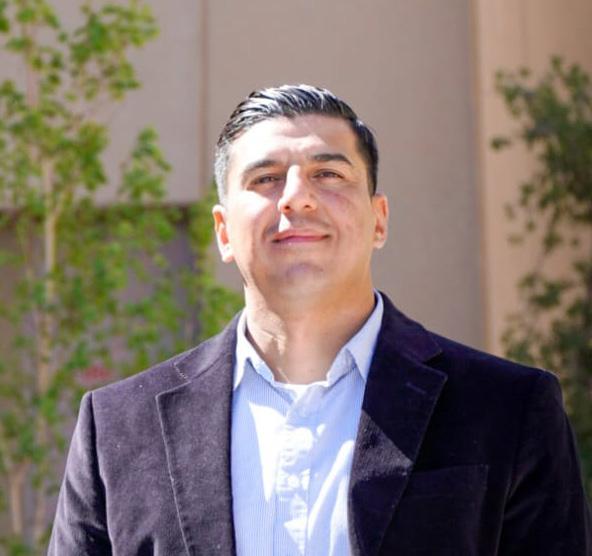
Ralph Carrasco, Vice-President
Project BRAVO, Inc, El Paso County

Diana Abrego | Del Rio/Eagle Pass Clients’ Council
Emma Alaniz | La Union del Pueblo Entero (LUPE)
Elsa Laura de Alejandro | Mercedes Clients Council Hidalgo County
Carlos Blanco | Laredo Clients’ Council Webb County
Ramona Casas | Edinburg Clients’ Council Hidalgo County
Jeanne Chastain | Corpus Christi Bar Association
Joseph A. Connors, III | State Bar of Texas
Leonor Cortez | Nueces County Community Action Agency
Victoria Guerra | Mexican-American Legal Defense & Education Fund
William Everitt Hopkins | Austin Bar Association
W. Lee Keeling | State Bar of Texas
Christina Mendiola | Laredo/Webb County Bar Association
Jose Ozuna | Hidalgo County Bar Association
Marta Peláez | Family Violence Prevention Services, Inc.
Cindy Polinard | State Bar of Texas
Judge Ron Rangel | San Antonio Bar Association
Roger Reed | Hidalgo County Bar Association
Judge Gloria M. Rincones | Cameron County Bar Association
Judge Selena Solis | El Paso Bar Association
Diana Torres | El Centro Del Barrio
Michael Wyatt | El Paso Bar Association
Ofelia Zapata | Advocates for Social Justice Reform

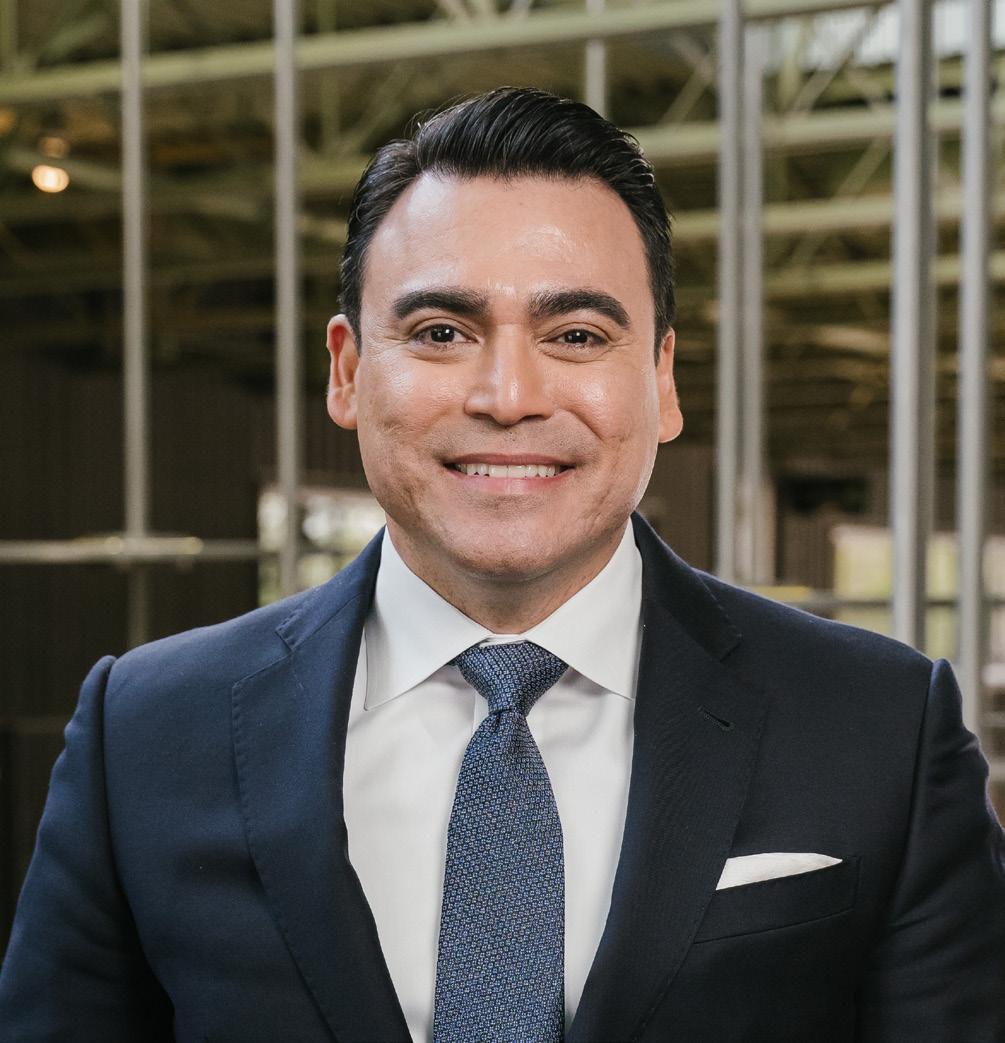
Javier Espinoza, President: As a firstgeneration immigrant from humble beginnings, the first in his family to graduate college, and the first attorney in his extended family, Javier has known and overcome complex life challenges. As an attorney who represents the working-class community in Work Injury and Labor & Employment discrimination claims, Javier is no stranger to the plight of people experiencing poverty and workers with low educational or economic resources. Coming from a family with a construction worker father who achieved a ninth-grade education and a mother who attained a fifth-grade education, Javier has been part of an underprivileged community all his life. Javier was initially drawn to TRLA by his first-hand experience of abuse in communities with low socioeconomic status.

“Being a part of and assisting in leading TRLA, an organization that can help those in need at a statewide level, is a dream come true for me. I plan on using my tenure to collaborate and engage our board more with our represented communities and the clients we serve.”
Javier Espinoza, TRLA Board President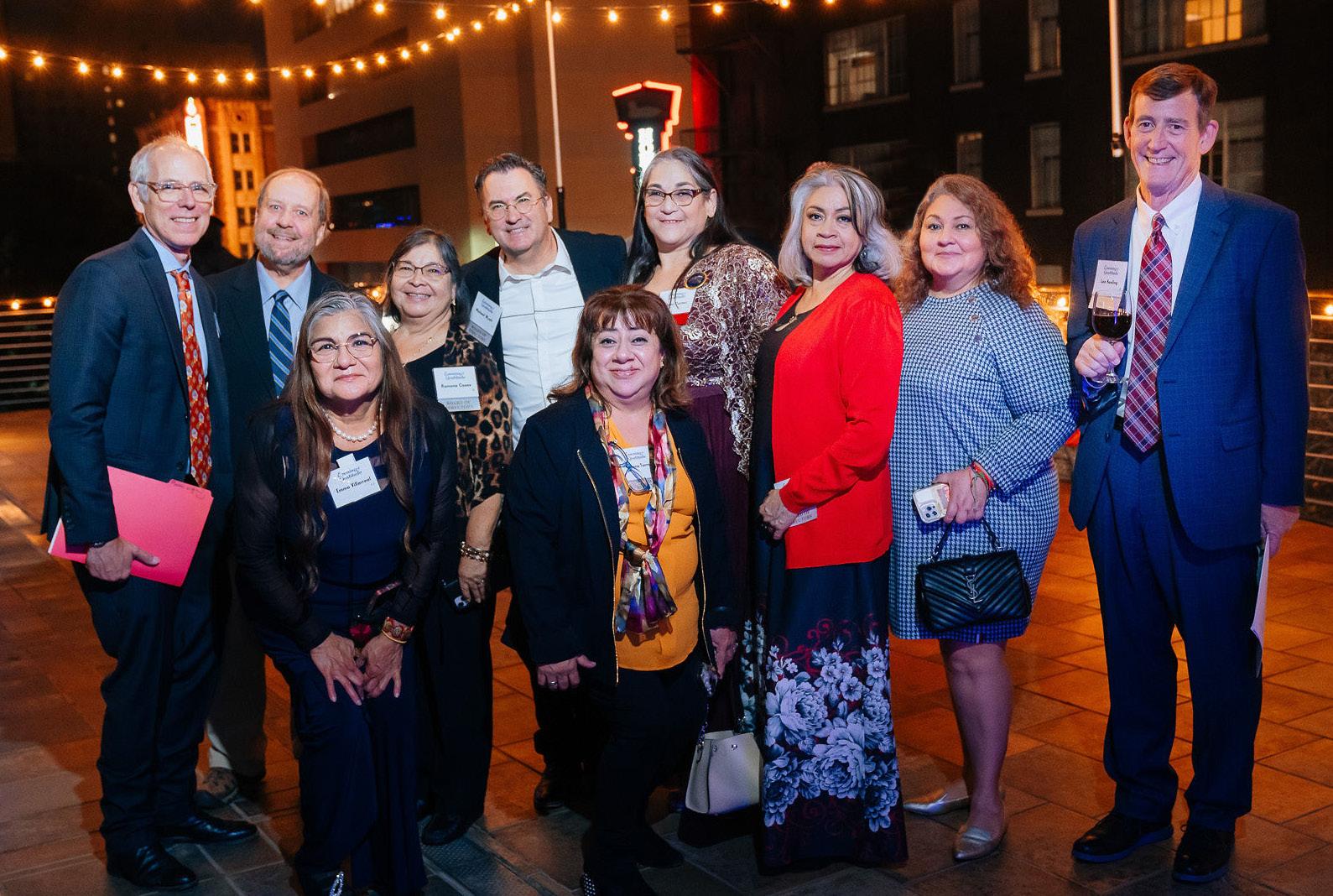


The phoenix soars above the fields, an homage to the legendary creature of myth that rises triumphantly from its own ashes, time and time again. The fiery bird is an undeniable embodiment of resilience, strength, hope.
The field, an homage to the farmworkers who were the original clients of TRLA, is nestled within a circular badge that represents unity and continuity.
The laurel wreath celebrates our victories over the bad actors and corporations that harm our communities. Sitting within the infinite circle, they also represent a promise to uphold the rights of the underserved.
The gaze of the phoenix is transfixed upon a bright North Star. This star was added to honor the legacy of our late Executive Director, David G. Hall. His work remains a guiding force for the organization.
The Phoenix has landed – and serves as our guide on our way to our North Star. We recognize the tumultuous journey ahead, but we don’t fear oppression; we stand against it and fight alongside our clients. As you’ve read in this report, we’ve stood up against the “bastards” – from TxDOT threatening a community’s livelihoods and health, an exploitative family member and attorney seeking to take a veteran’s home, to an abusive partner and state agencies, and many others like them. The Phoenix signals a change of an era, reminding us of those who came before and those waiting in the future; we’re honored to have you join us on this journey.
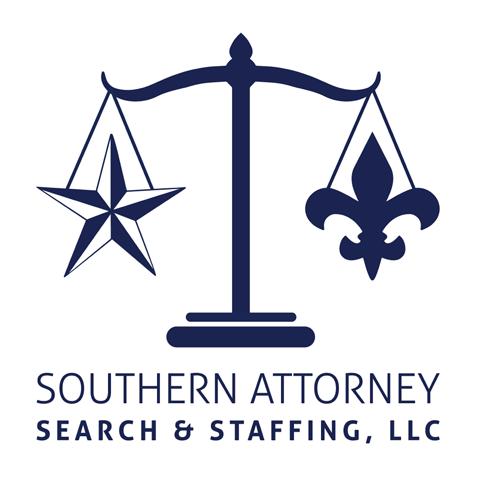

to our sponsors for supporting our mission
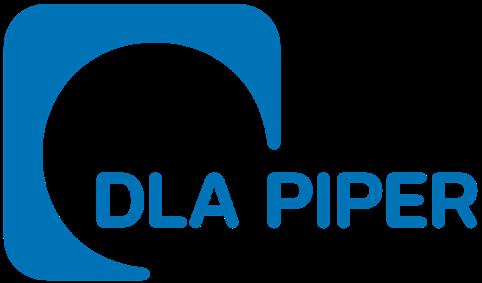



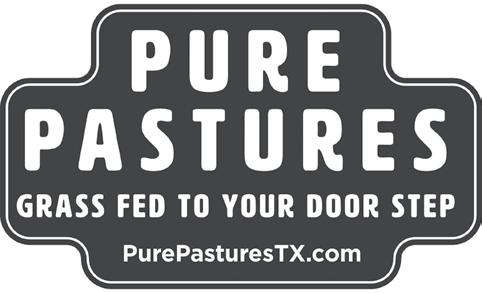

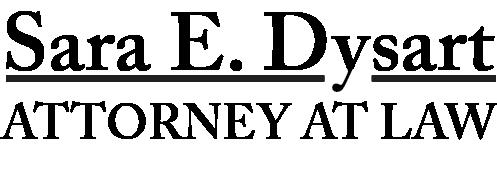
Texas RioGrande Legal Aid (TRLA) is a charitable organization as described in §501(c)(3) of the Internal Revenue Code; EIN#: 74-1675230, registered in the state of Texas. Following the Internal Revenue Service guidelines, TRLA maintains discretion and sole control over the use of all donated funds.
Therefore, donors explicitly release TRLA from any restrictions on how those funds are spent. Contributions are tax deductible to the limit allowed by law if the donor itemizes. Donors who donate more than $25.00 in any given year will be mailed a statement for all their donations by Februar y of the following year. If you have any questions regarding your gift (s) or you need a receipt or a statement of any of your contributions, please feel free to contact us here.
TRLA may not expend any funds for any activity prohibited by the Legal Services Corporation Act, 42 U.S.C. §2996 et seq. or by Public Law 104134. Public Law 104-234 §504(d) requires that notice of these restrictions be given to all funding sources of programs funded by the Legal Ser vice Corporation.
For more information about TRLA’s finances, view our most recent Form 990 for fiscal year 2022 here. For a copy of these laws or any further information or clarification, please contact the Executive Director, Texas RioGrande Legal Aid, 301 S. Texas Ave., Mercedes, Texas 78570.
Laura and Lew Moorman